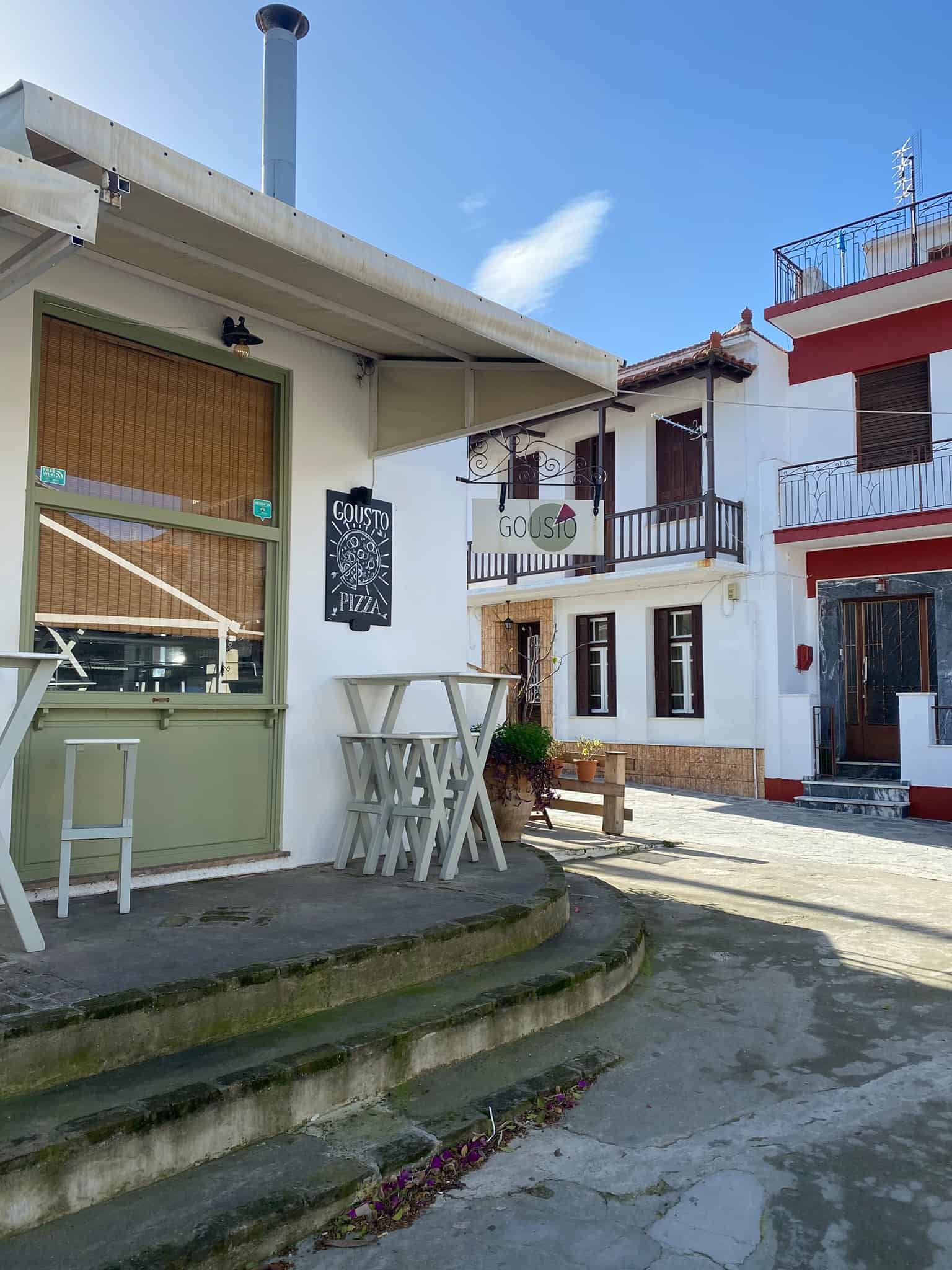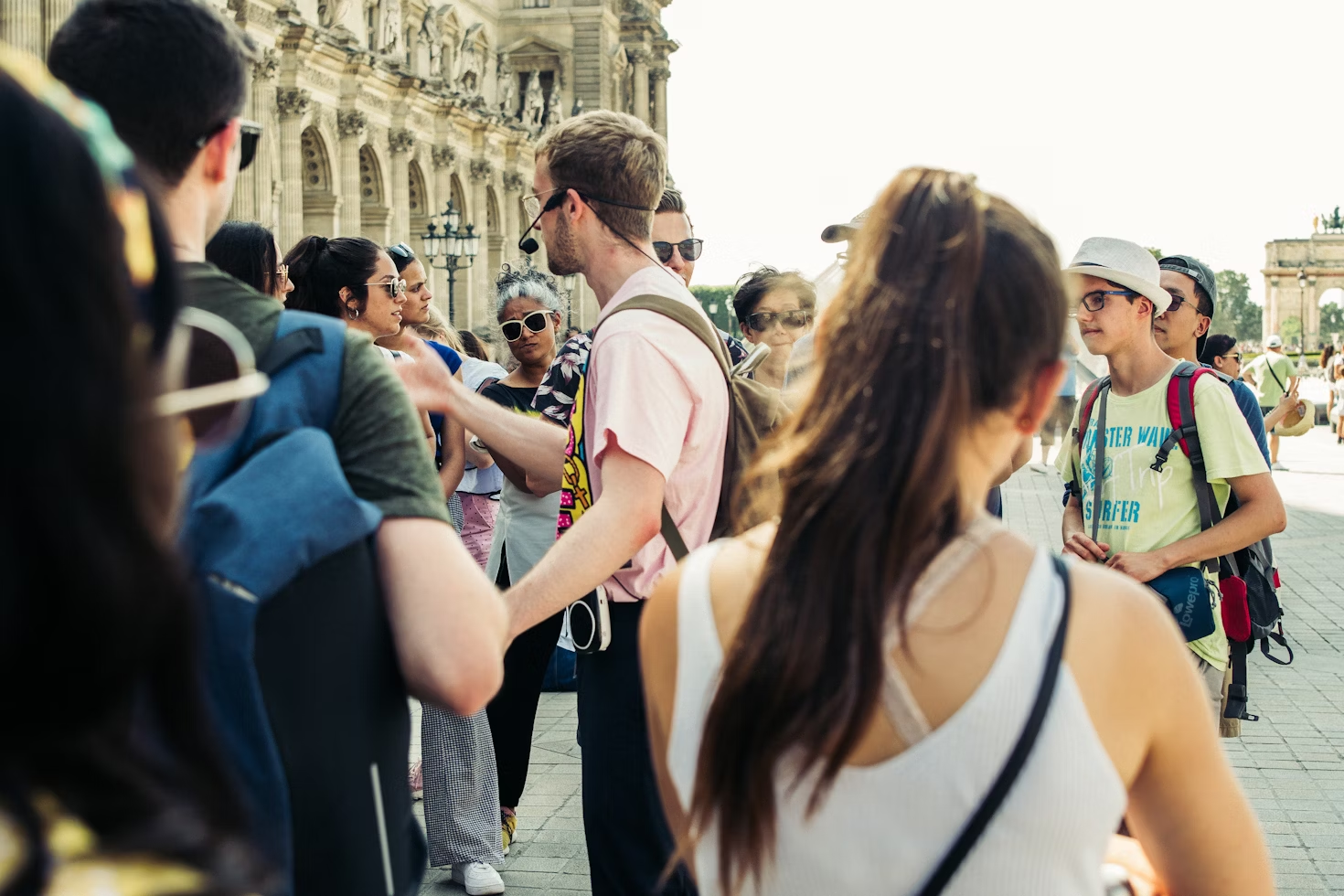Looking for things to know before traveling to Greece for the first time? You have come to the right place.
I have been living in Athens since 2017 and I am well versed in the local culture. The suggestions here will help you to make the most of your time in the country, prepare for any eventuality, and be a mindful traveller in the process.
Things to Know Before Traveling to Greece
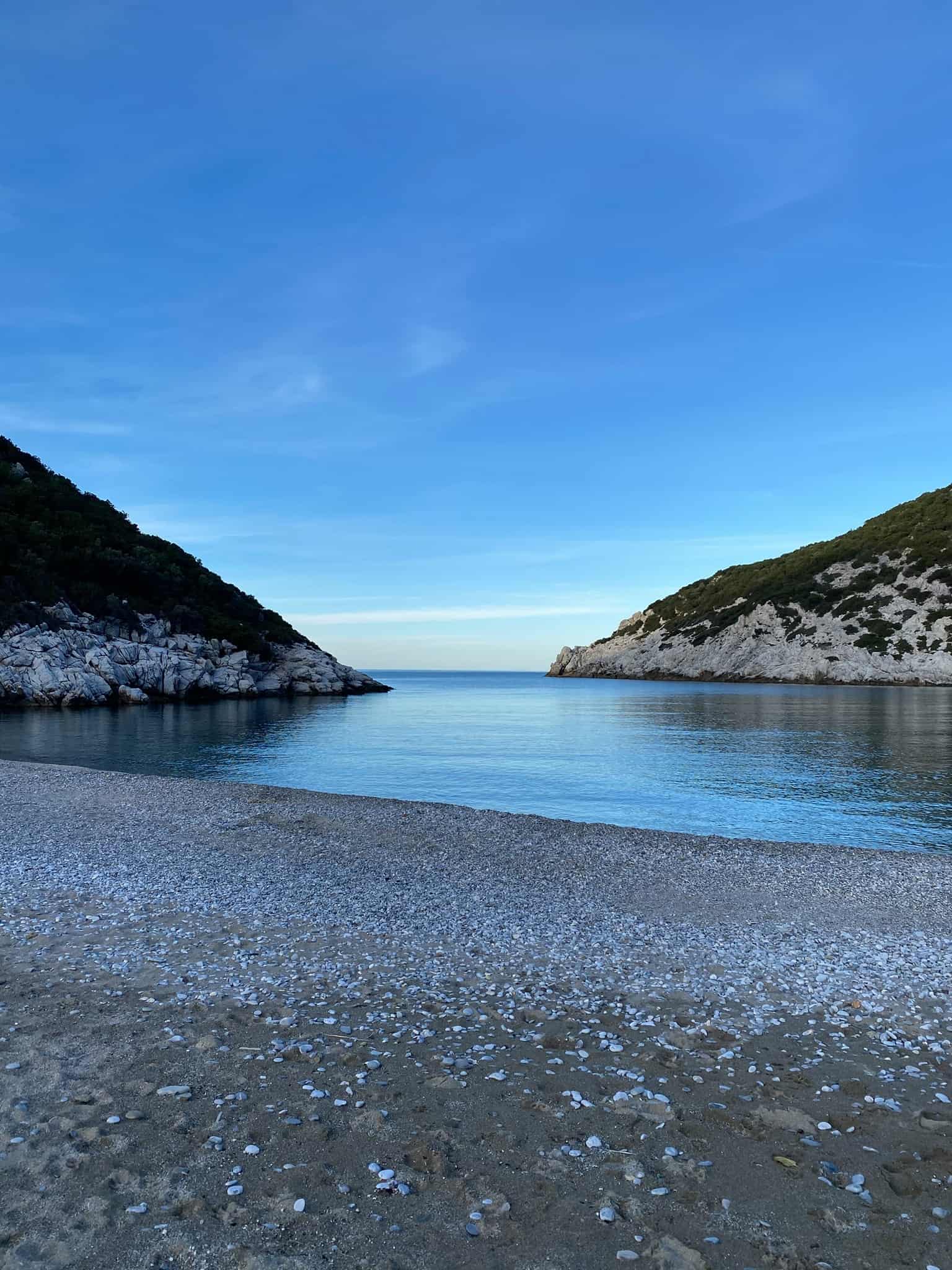
It is estimated that over 30 million tourists travel to Greece every single year. This makes Greece one of the most popular destinations in the world. For good reason too.
Not only is Greece stunningly beautiful, but the country is also home to incredible gastronomy, fascinating history, and warm, welcoming people. There is something in Greece that appeals to every type of traveller.
Walking tours are a good way to get your bearings
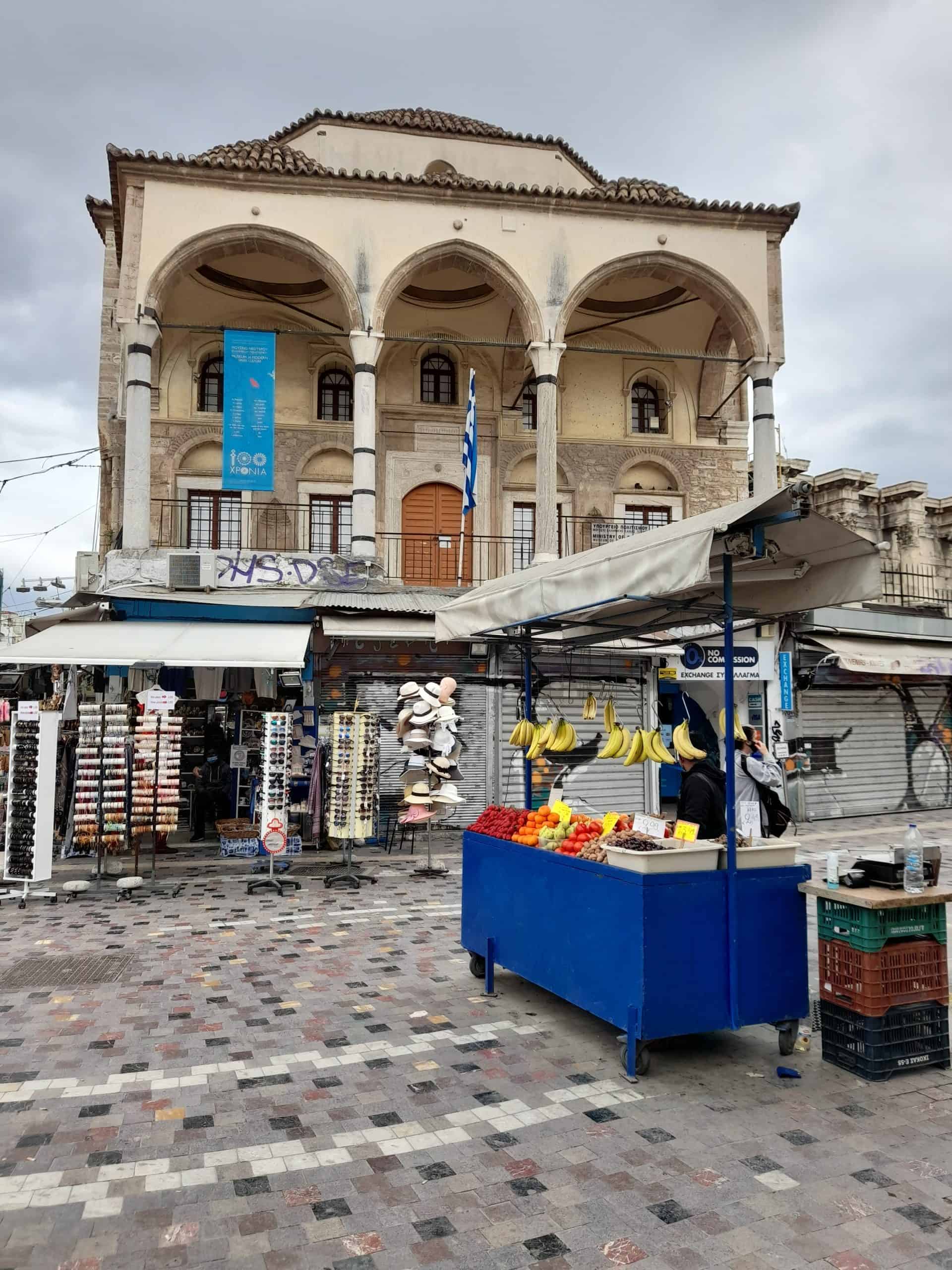
Greek cities such as Athens, Thessaloniki, and Ioannina can be overwhelming places to explore when you first arrive. They all have a city centre of course (like Syntagma Square in Athens).
However, many of the city neigbourhoods are like little towns and villages in themselves, each with its own distinct personality. They also have their own central squares and dining and nightlife options.
Opting to take a walking tour is a great way to get your bearings when you arrive in a new city. You will find that many reputable local companies run walking tours in towns and cities all over the country.
Many are free (tip-based). You can also find Greek walking tours that focus on a particular theme.
For instance, there are Athens street food tours that take you through all of the best districts and marketplaces that you probably would not have stumbled upon independently or evening drinks tours. Better still?
Exploring with a local means that you gain a lot more information and context to the various things that you see. You also have a city “expert” on hand that you can ask for recommendations on the best places to eat, drink, grab a coffee, etc.
Strikes are not unheard of
Public transport strikes do happen occasionally across Greece, particularly in Athens. Sometimes, bus and rail strikes can be announced with little to no advance warning.
When you are planning your trip to Greece, it is a good idea to do a quick Google search right before you depart for your trip to see if any strikes are scheduled or in the news. Don’t worry about this too much though.
While it is good to know what is going on with the transport situation, there are always alternatives. You can easily call a Greek taxi in the midst of a strike by using the BEAT taxi app and private transfers are also an option.
Greek sim cards can help you stay connected
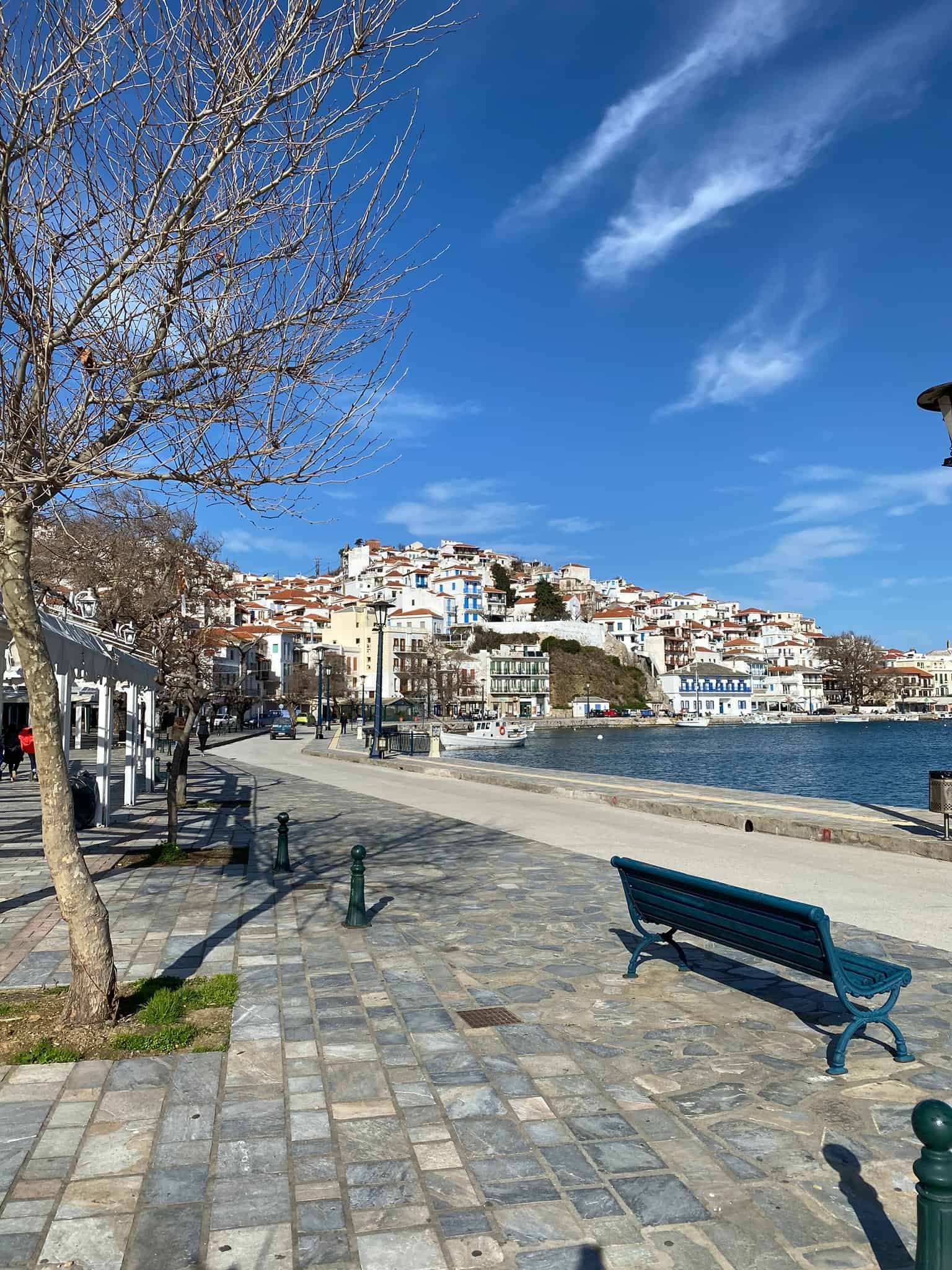
Getting a Greek sim card is a good way to stay connected during your Greece itinerary.4G and 5G are available across the country and knowing that you have access to data to check directions, use Google maps, send emails, ad message your Airbnb hosts can take a lot of stress out of your trip.
Cosmote, Wind, and Vodafone are the main phone providers that exist in Greece. Getting a tourist sim card is pretty straightforward – you can stroll into any phone shop or airport kiosk and get one in 5 minutes.
However, it is worth noting that you must present your passport or some form of ID. Cosmote is the largest cell phone network in Greece.
However, arguably Vodafone is the best option for tourists. Vodafone International packages also include minutes and data that can be used in other European countries or on international phone calls.
For €8.50, you can get 7 GB of data for 15 days. Alternatively, for the same price, you can get 3 GB of data for 15 days along with international calls and texts.
Vegan and vegetarian food is not that difficult to find
Greek cuisine is perhaps best known for its traditional meat dishes. However, if you are vegetarian or vegan, you may be pleasantly surprised and discover that it is easier to find things to eat than you first realised.
First of all, there are a number of Greek dishes that are vegan-friendly. You can find a lot of them at most tavernas and traditional restaurants.
Fasolakia (Greek braised green beans) is an underrated dish that is often eaten in the winter. Greeks typically order it as a side dish, but you could absolutely dig into a giant portion of fasolakia as a main dish if you like. (Seriously, it is that good).
Fasolakia is made by slow-cooking green beans in a delicious homemade tomato sauce made with onions, olive oil, garlic, and oregano. When they are done, they have an incredibly soft texture that resembles tagliatelle.
Greek fava, the yellow split-pea puree that you find served as a starter in most restaurants, is also vegan and can be enjoyed with bread before a meal. Other vegan dishes to look out for?
Aginares Ala Polita, Prasorizo rice and Lahanorizo. You can search “vegan food in X” and the name of the town/city to find suitable places to eat in each location. Happy Cow also lists vegan-friendly restaurants in Greece that are worth considering.
It is essential to book in advance if you travel during the summer
Greek island hopping is a great way to explore Greece. With so many islands and Greek island groups to choose from, it is overwhelming to know where to start.
You may feel that you want flexibility in your schedule and the freedom to stay on a certain island a little longer than planned if you like it, or to essentially make your trip up as you go. However, unfortunately, this is simply not an option if you are traveling to Greece during the peak summer months of July or August.
Accommodation, car rentals, and excursions book up months in advance. Some people book their trips to popular islands (think Zante, Skiathos, Corfu, etc) as much as a year in advance!
It is not unheard of for ferries and flights to sell out either. At the very least, flight prices increase dramatically during the peak season, the closer to your departure date you leave it.
So, if you travel during the summer, you need to have everything organised and booked in advance. Winging it becomes more of an option if you are willing to travel during the shoulder and winter seasons.
Certain attractions offer reduced admission in the winter
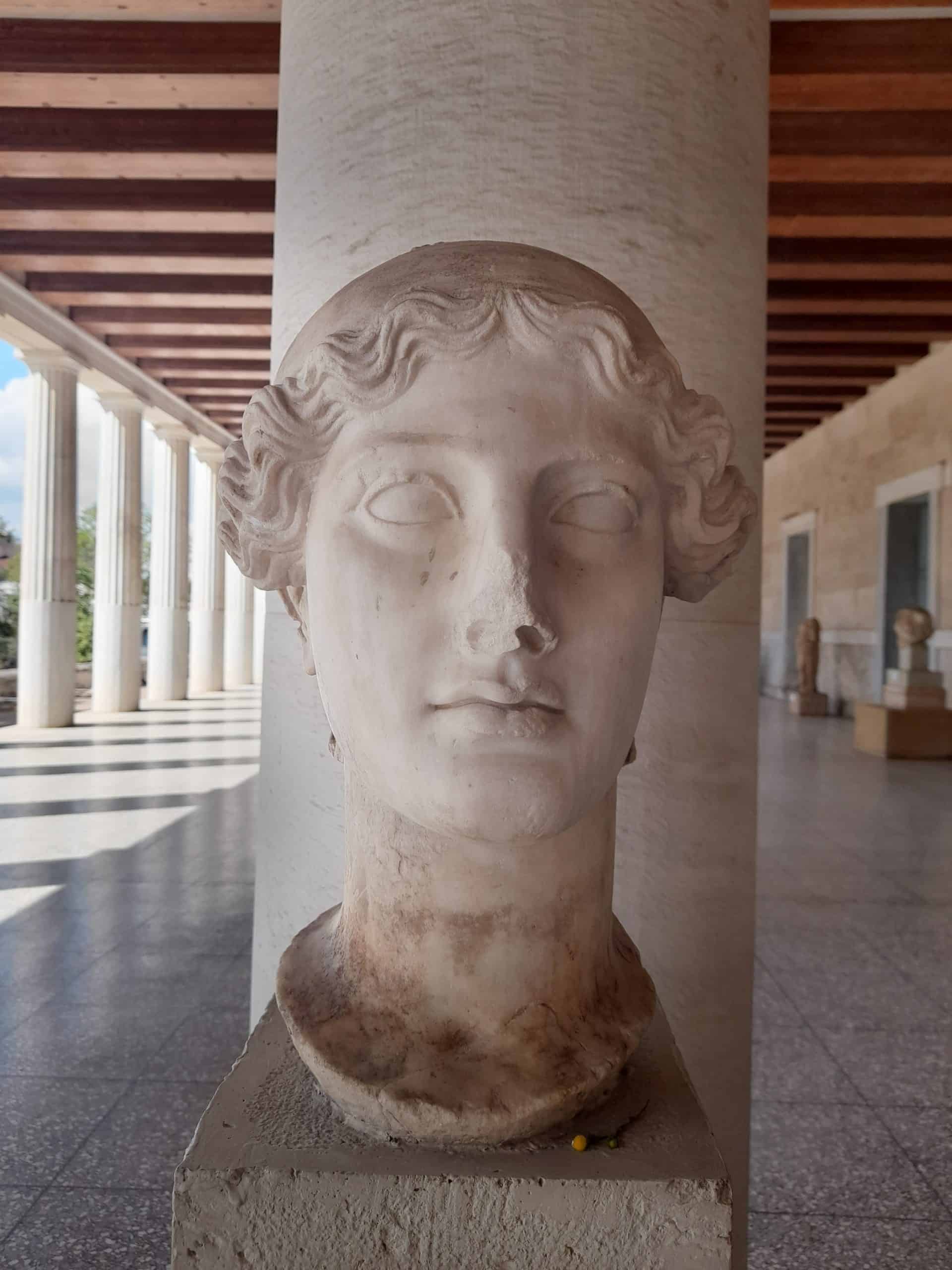
The months of November through to March are classed as the winter season in Greece. Many attractions, museums, and archeological sites in Athens and beyond offer reduced or free admission during this time. Many Athens museums are also free to enter on the first Sunday of the month between November and March.
The Athens combination ticket is well worth purchasing
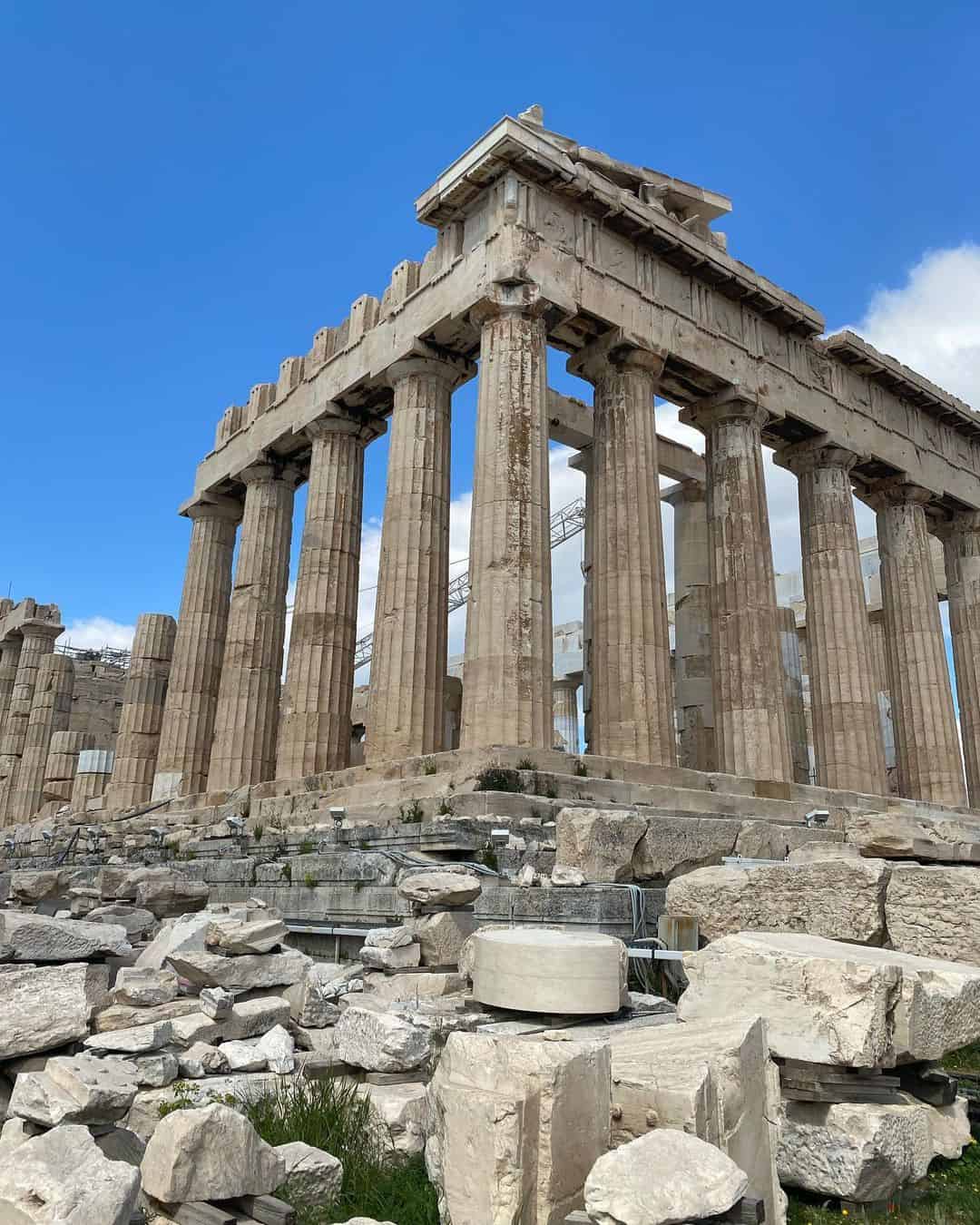
If you are going to be spending one or two days in Athens, you should consider purchasing an Athens combination ticket. This pass lasts for 5 days and includes admission to 7 key archeological sites in the city.
The pass costs €30. Considering the fact that admission to the Acropolis and the Acropolis museum is just €20, you only need to visit one other Athens landmark to get your money’s worth out of the pass.
The ticket also includes entrance to the Temple of Olympian Zeus, the Ancient Agora and the Stoa of Attalos Museum, Hadrian’s Library, Kerameikos, the Roman Agora, and Lykeion. You can also pay extra for a pass that includes skip-the-line access.
Assuming that you will visit multiple of these attractions, you should definitely consider purchasing the pass. You can find more information here.
Tipping is not expected here

Tipping is not expected in Greece in the same way that tipping is expected in Mexico, the United States, or Canada. A few fancy Thessaloniki and Athens restaurants may add a recommended service charge onto bills but this is the exception rather than the rule.
That being said, small tips are appreciated, especially if you have been sitting somewhere for a while or you have received exceptionally good service. Another good time to tip is if you use food delivery apps like Wolt or Efood.
Greek delivery drivers are not well paid and it is polite to just give them an additional 50 cents or so. At cafes and tavernas, you can just leave an extra euro or so on the table when you finish your meal.
Greeks are usually late for everything
Something that is perhaps a shared cultural trait of people from across the Mediterranean is lateness. Greeks too, are often late for things and this is perhaps a result of their laidback approach to their schedules, social events, etc.
Generally speaking, if you tell a Greek that you are meeting them at 9 pm, they take 9 pm as a guideline. 9 pm is probably when they start getting ready to leave their house and so, 9.30 is more accurate.
If you are coming from a country like the UK where punctuality is expected and arriving somewhere even 5 minutes late is considered rude, this can be a bit of a culture shock. Rest assured it isn’t anything personal. People just have a different concept of time in Greece.
Greek coffee culture is huge
If there were to be a national sport in Greece, drinking Greek coffee would be it. Coffee shops occupy virtually every street corner of every village, town, and city in the country.
They are usually absolutely crowded with people too, whatever time of day that you happen to stop by. While some nationalities will go out and catch up with their friends over a beer or another alcoholic drink, Greeks will catch up over a cup of coffee.
Traditional Greek coffee is a strong, bitter drink that is prepared in a copper briki and served in a small espresso cup. A complimentary plate of loukoumi, the Greek version of Turkish delight, is usually served on the side.
Most young Greeks drink cold coffee known as “Freddo” and even if you are not a fan of iced coffees or cold brew normally, you may still love Greek Freddo coffee! A Greek espresso is simply an espresso poured over ice.
For something particularly special, order a Freddo cappuccino. This is a Freddo espresso with the addition of cold foamed milk.
You can drink the water in most of Greece
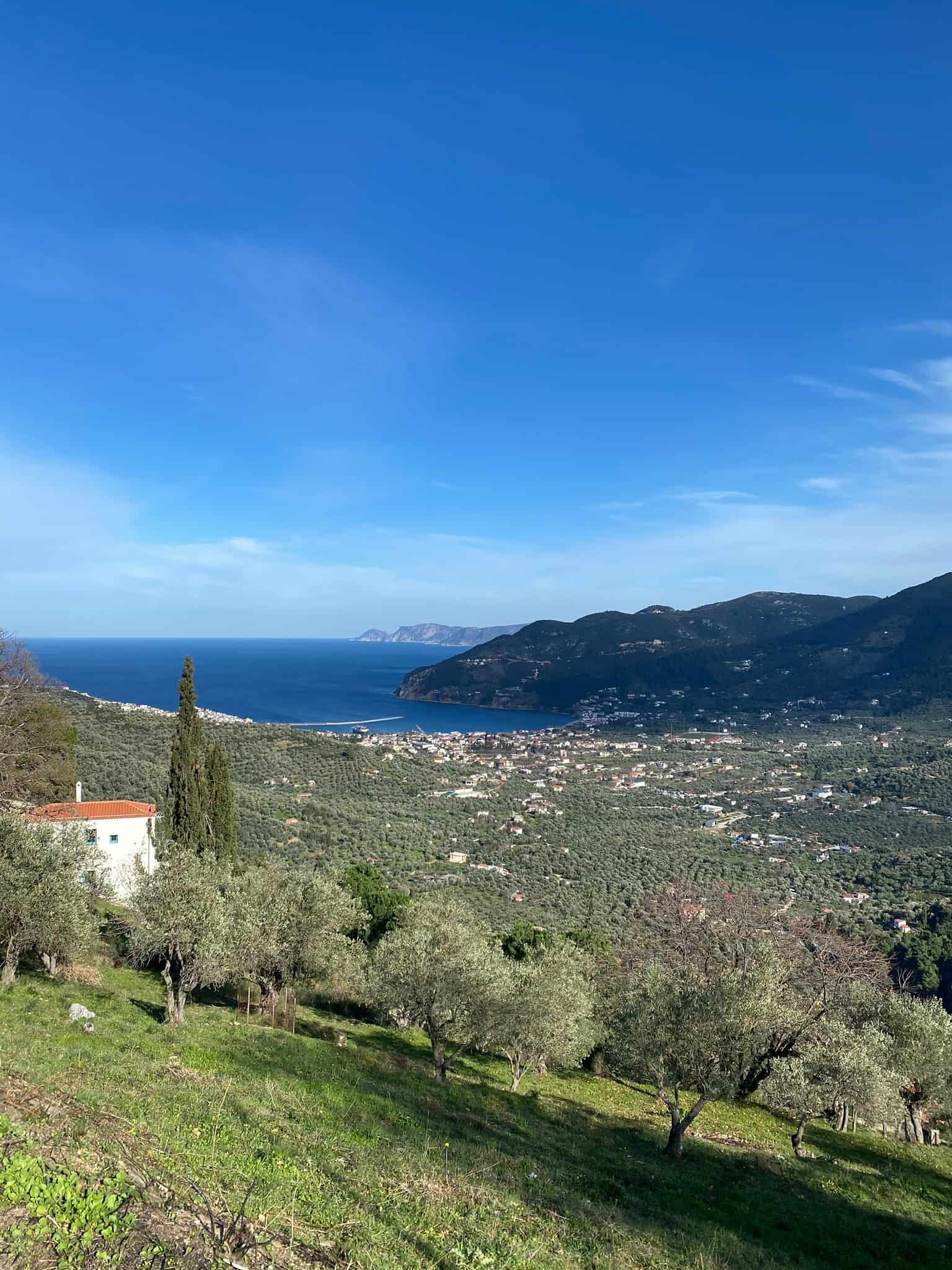
It is safe to drink tap water in most of Greece, particularly in Athens, Thessaloniki, large cities, and parts of the mainland. Although, you will find that on some islands (like Skiathos and Skopelos), people generally prefer to drink bottled water rather than tap water as the water there has a larger amount of sediments inside.
Drinking this water won’t harm you and there are plenty of older Greeks that live there and only drink the tap water. It is just worth knowing.
It is a good idea to purchase a reusable water bottle for your trip so that you minimise your plastic waste and you always have plenty of water with you while exploring in the sun. Lifestraw bottles are particularly good.
Wildfires are becoming an increasing risk
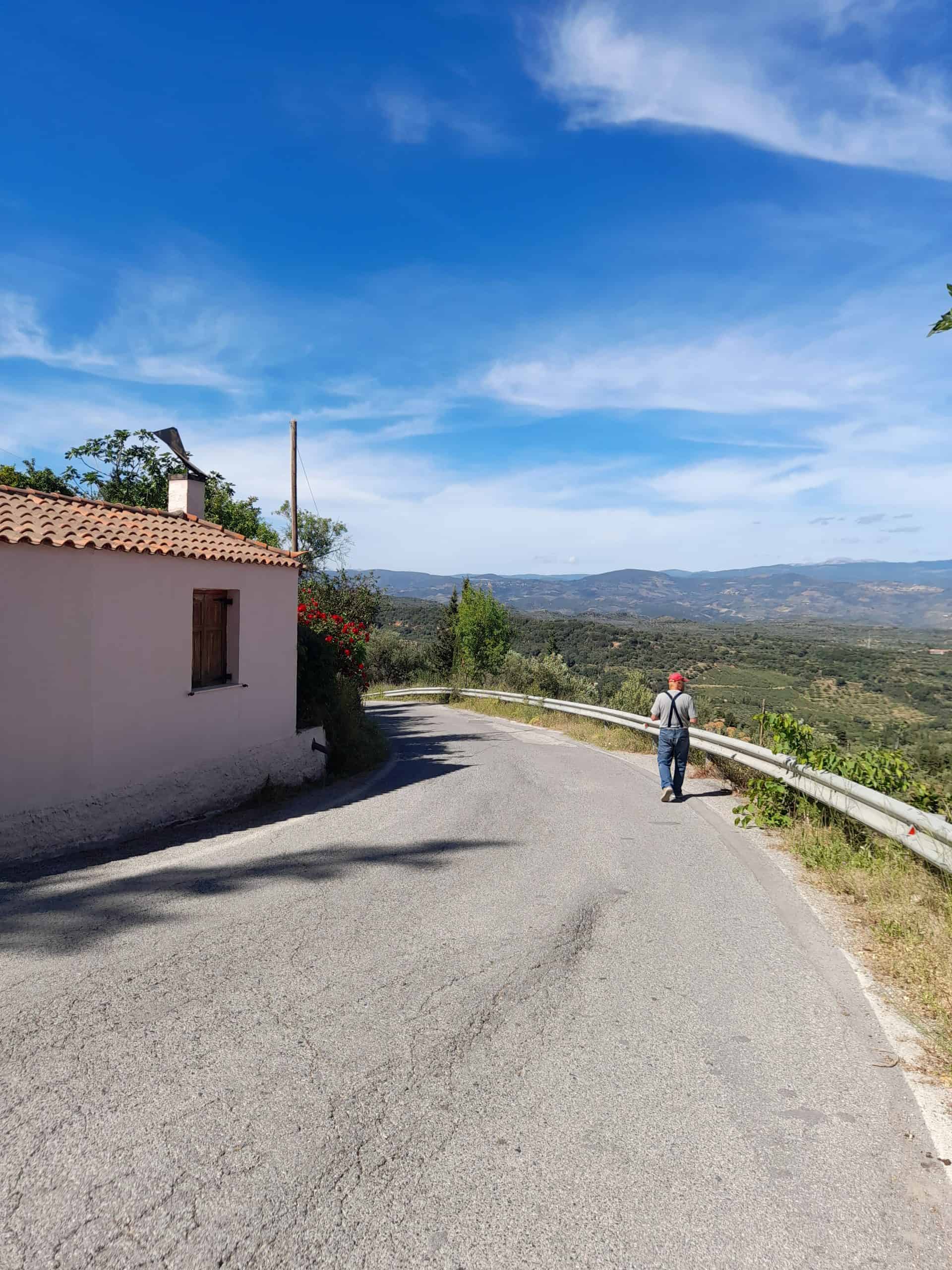
The unfortunate reality is that global warming is affecting the world that we live in and sadly, many warm, Southern European countries like Greece are facing the brunt of this. A number of wildfires have taken place in Greece in recent years and going forward, this is likely to continue to be a concern.
August 2022 saw Greeks and tourists evacuated from the island of Zakynthos (Zante) due to wildfires. 2021 saw shocking fires ravage Evia.
Sadly, there is no way to predict when and where wildfires may possibly happen. Don’t let this put you off traveling to Greece, but do be aware.
The risk of fires increases during the summer months, especially in green areas such as the Peloponnese. Such areas are perhaps left until Autumn to visit.
It is a good idea to open a borderless bank account
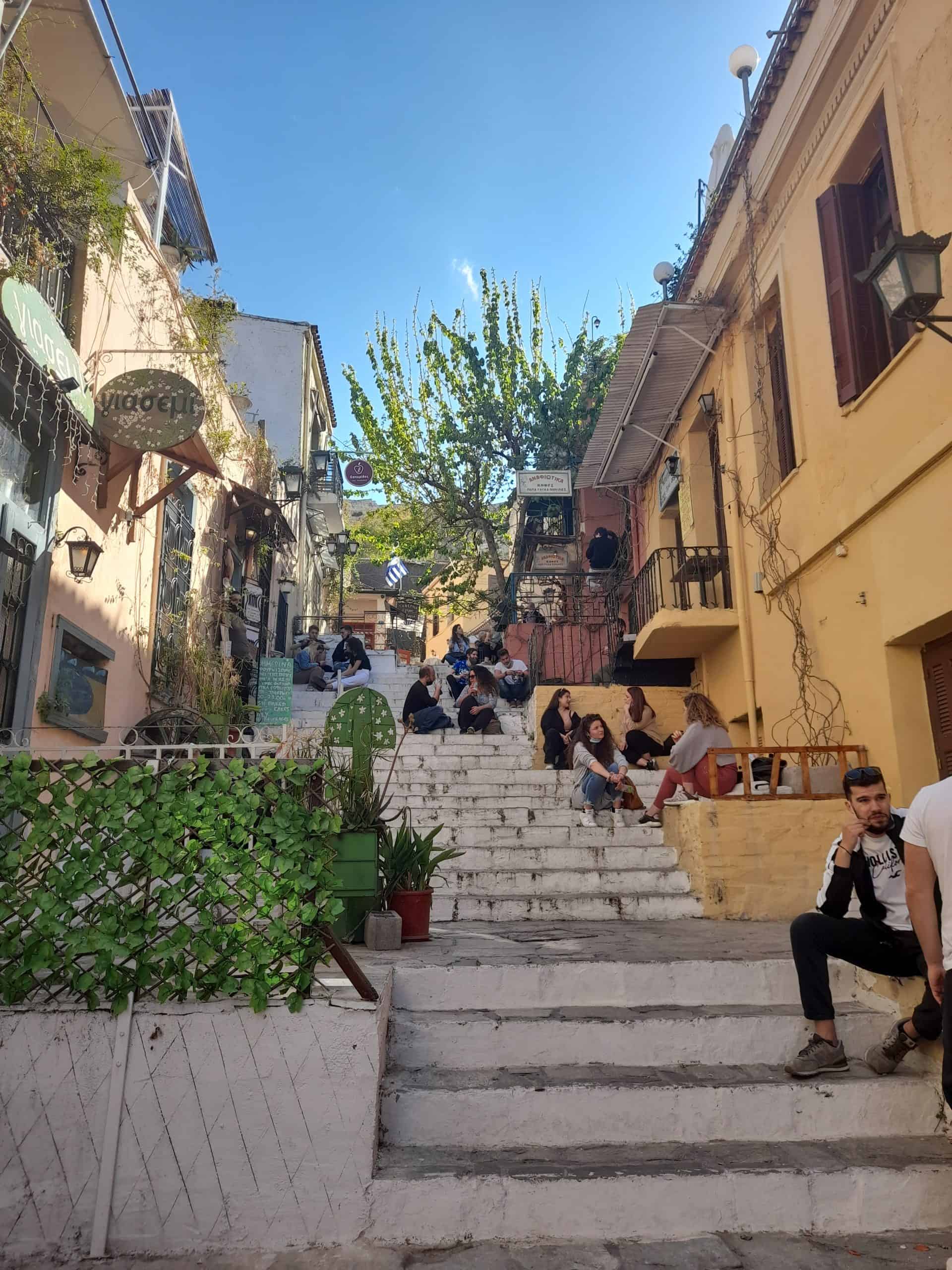
It is a good idea to open a borderless bank account before you travel anywhere internationally – Greece included. Wise (formerly Transferwise), Revolut, and Charles Schwab (the USA only) are among the most reputable borderless accounts to consider.
You may find that the bank that you use in your home country charges you a relative amount every time that you make a withdrawal overseas or make a purchase on your card. Charges on foreign transactions can be as much as several euros for every purchase.
It soon mounts up! Similarly, when you withdraw money from an ATM, you may find that you are hit with a barrage of charges, many of which you do not have visibility of until you check your statement later.
The ATM may charge you a usage fee, and then both your bank and the Greek bank may charge you conversion/transaction fees. It soon mounts up!
Most people can enter Greece without a visa
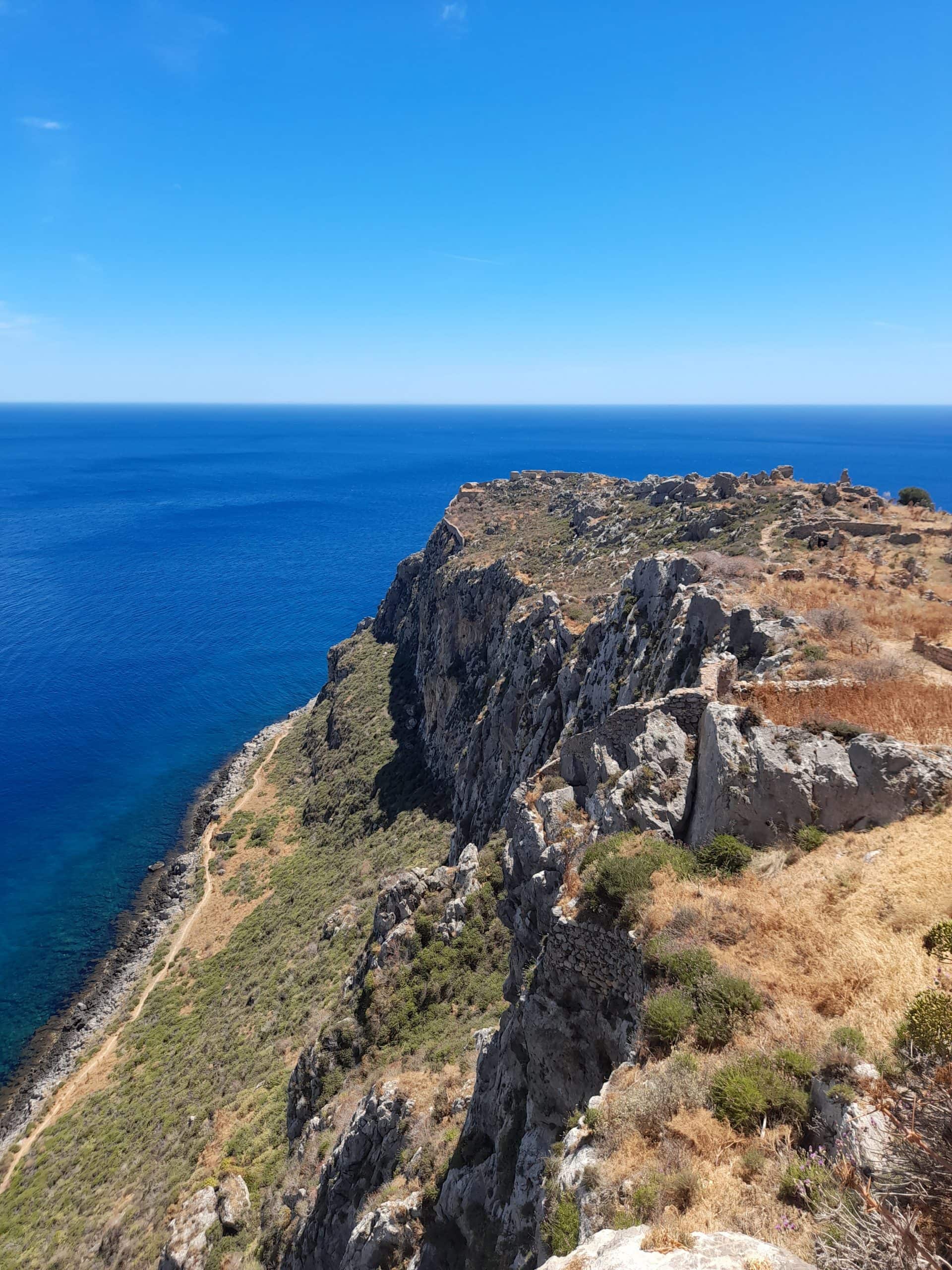
Greece is one of 26 countries located within the European Schengen zone. Citizens of most countries (including British, American, and Canadian travelers) can enter Greece without a visa.
You are permitted to spend up to 90 days in any 180-day period in the Schengen zone (including Greece). However, travelers from certain countries may require a visa for Greece. So, it is a good idea to check your local government’s travel advice for specific information prior to your trip.
Some islands do not have great electricity and power in place
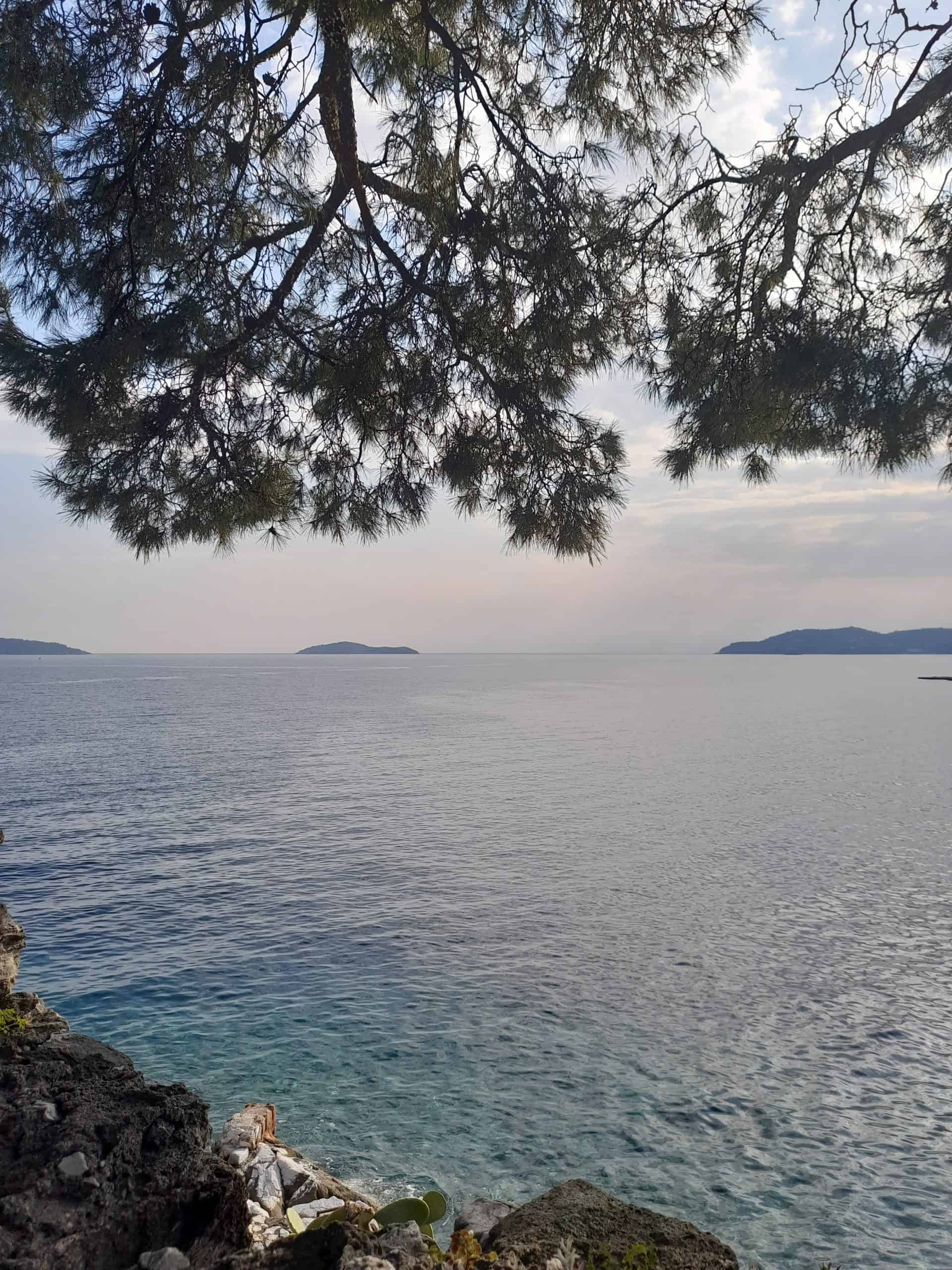
When you start venturing somewhat off the beaten path away from the most popular Greek islands, to quieter Greek islands like Alonissos, Skyros, and Skopelos, you will find that many amenities are not the same.
Wifi, phone signal, and internet connections can leave a lot to be desired in some areas. For instance, in the Sporades, electricity is supplied to the islands of Skiathos, Skopelos, and Alonissos by a cable that runs from Volos on the mainland.
Sometimes, storms and damage to the cable mean that people on these islands are without power for a day or more. Don’t be surprised if you find that all of the power goes out here for a couple of hours if you are there while it rains heavily!
It is customary to receive a free dessert at restaurants
When you eat out at tavernas in Greece, it is customary to receive a free dessert after your meal. This is commonly spoon sweets (Glyka tou koutaliou).
This national delicacy is made by preserving fruits in a sweet, sticky syrup. Then, the fruits are served with yogurt.
However, although this is a popular complimentary dessert option, it certainly isn’t the only one! You will likely find yourself presented with everything from halva and spooned sweets, to giant, sinful slabs of chocolate cake slathered in fresh cream.
Christmas time in Greece is magical
While December may not be the most common time to travel to Greece, it is a magical time of year to visit. Most Greeks follow the Orthodox faith and Christmas is a very big deal here, much like in most European countries.
The festive season sees ice rinks pop up besides historical attractions and ancient ruins in Thessaloniki and Athens, and gorgeous Christmas lights and trees pop up all over the country. In Syntagma in Athens, there is a giant tree and free live musical and cultural performances are hosted almost every night of the week.
This is a great time of year to really immerse yourself in Greek culture and sample festive treats. Practically every Greek bakery will stock melomakarona during this time (crunchy Christmas biscuits made with orange and honey), or kourabiedies (almond cookies).
Driving in Athens is best avoided
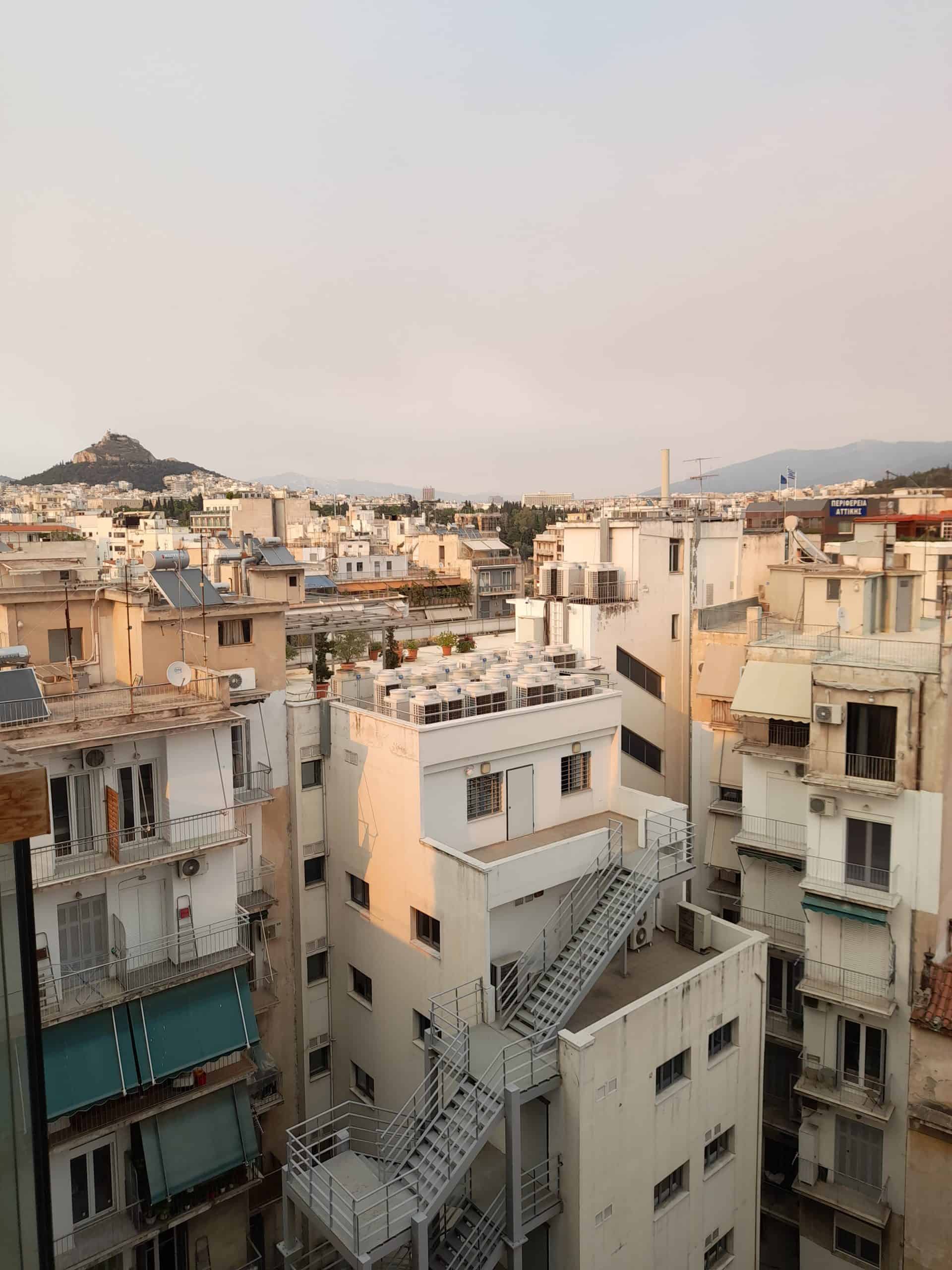
While driving in Greece generally isn’t as daunting as it may sound, driving in Athens is best avoided unless absolutely necessary. The streets here are extremely congested and finding parking is nightmarish and borders on impossible in certain central Athenian neighborhoods. (Kolonaki, Koukaki, etc).
Some of the main streets are multi-lane nightmares, particularly Leof. Vasileos Konstantinou which runs through the centre of town. Others are one-way and as a foreigner, it can be difficult to know where to go.
All of the chaos leads to a lot of road-raged drivers. Greek drivers don’t always adhere to road rules anyway which is a challenge in itself on rural roads.
However, in Athens, the traffic makes everything worse. Motorbikes come from every angle and people will often whizz through red stop signs. Generally speaking, you are better off taking a cab or the metro.
Greeks follow a Mediterranean eating schedule
Most Greeks eat their breakfast, lunch, and dinner on “Mediterranean time” which may be different from what you are used to. Breakfast is often a coffee and a Greek pastry, and it is enjoyed whenever the person wakes up.
Lunch is typically eaten around 3 or 4 pm and dinner can be as late as 9 or 10 at night! When Greeks hear that western people have their lunch at 12 noon, they often respond with a frown!
Regardless, you will find it very easy to eat on whatever schedule that you prefer, as many eateries are open all through the day – even in non-touristic parts of the country. It is just worth noting this cultural difference.
Pack circular two-pronged adaptors for Greece
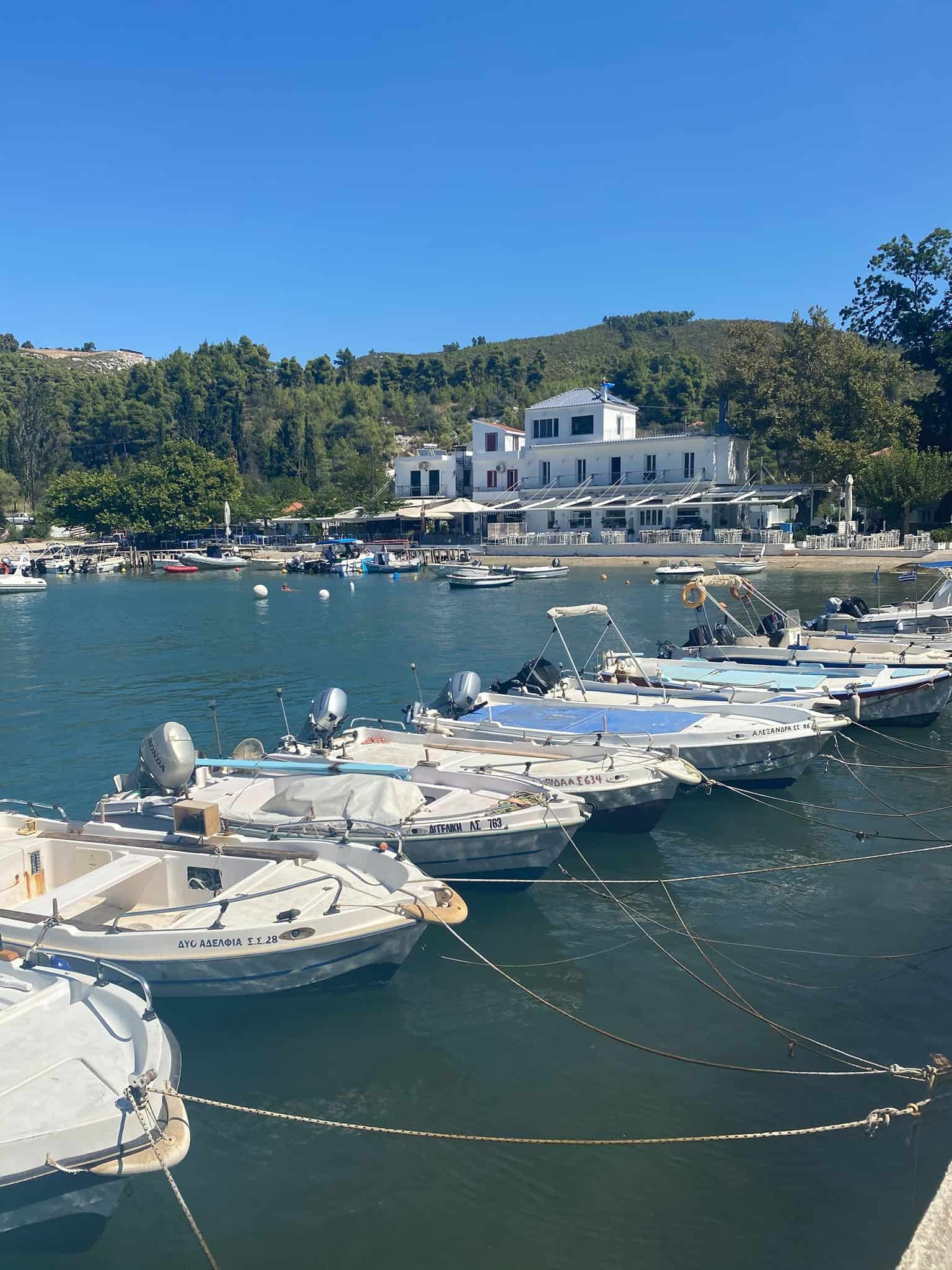
Greece, like much of Europe, uses circular two-pronged plug sockets so be sure to purchase and pack the correct adaptors prior to your trip. If you forget these, you can pick them up at the airport or at entertainment stores like Public, Media Markt, or Kotsovolos.
Female travelers should pack the period products they prefer
Tampons are not widely available in Greece and most people here use sanitary pads. You may be able to find them at certain stores and pharmacies, but you may often find that you go into supermarkets and pads are all that are available.
If you prefer tampons, particularly if there is a certain brand or specific product that you usually use, it is worth packing these. You may also want to consider investing in period products such as a Diva cup or period panties, to make travelling during your time of the month that little bit easier.
It is a good idea to pack your essential toiletries

It is advisable to pack an amount of the toiletries that you often use for your trip to Greece. Most hotels, Airbnbs, and accommodations provide complimentary soaps, shower gels, and shampoos.
However, if you need something specific, for instance, shampoos and conditioners for dry/curly hair, consider packing it in your checked bag. Remember that if you are only traveling with carry-on luggage, your liquid quantities must not exceed 200ml per item and all liquids must be displayed in a transparent plastic bag.
Toiletries are easily available in Greek supermarkets and pharmacies. You will also find cosmetic and beauty items sold in Hondos Center and Sephora branches.
Most global cosmetic and toiletries brands are available in Greece. You will also find a lot of quality Greek brands like Korres and Apivita stocked in many local pharmacies.
Sunscreen is often more expensive in Greece than it is elsewhere so consider bringing your own. Pharmacies tend to sell a higher-end brand of sunblock products so if you are looking for a non-branded, more affordable sunscreen, try and shop at a supermarket.
If you forget anything, you can easily find it here
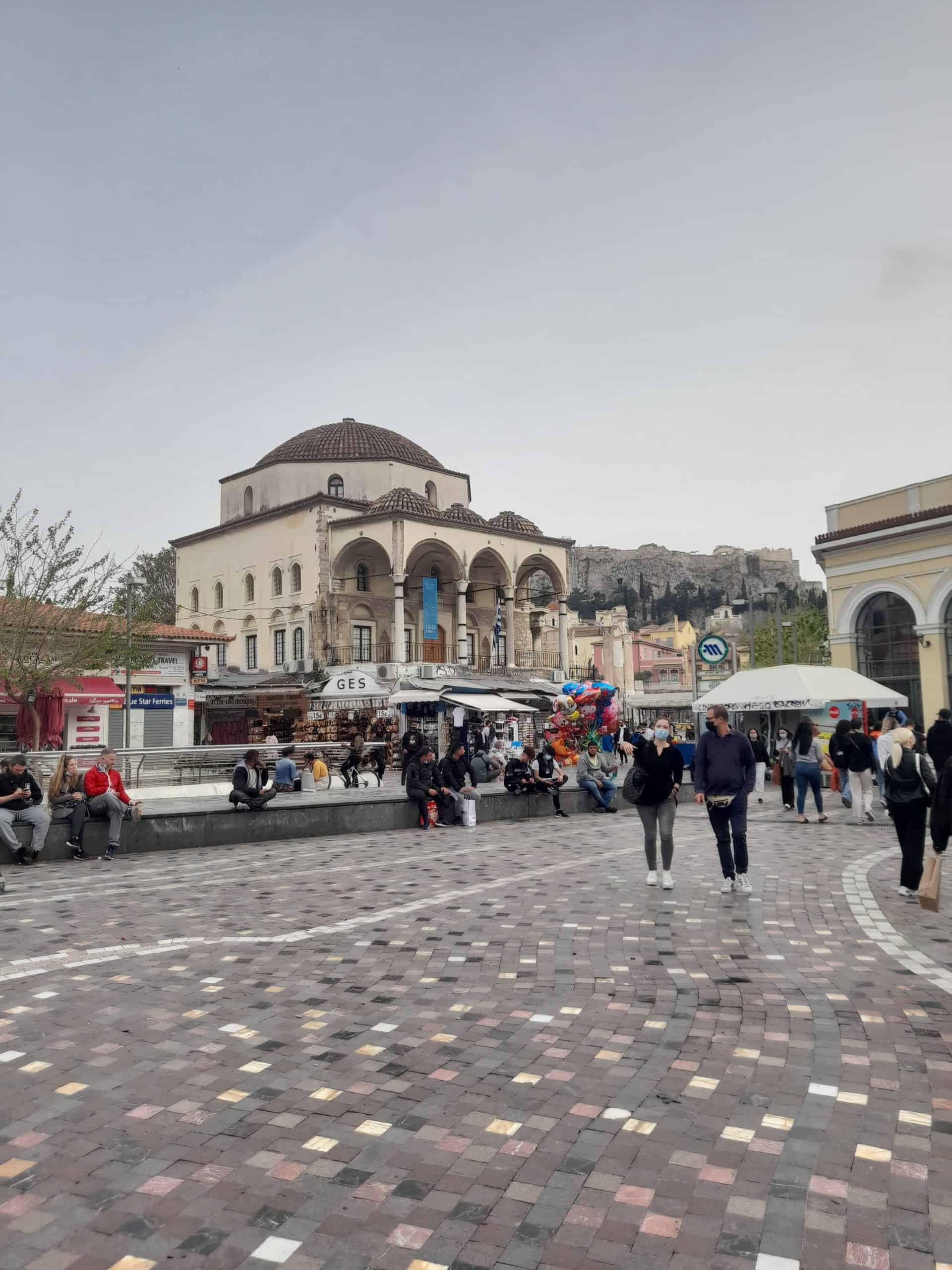
It is good to pack all of the clothes, toiletries, accessories, etc that you think that you will need for your trip. But if you do forget anything, you will be able to replace it in Greece.
Greek pharmacies sell a range of meds, skincare products, toiletries, personal hygiene products, etc. So too do supermarkets like Slavenitis.
The branches of many well-known high street stores can be found across Greece – H&M, Zara, Mango, etc. So too, can various independent Greek stores that suit all budgets. Shopping in Athens, in particular, is excellent.
You cannot flush toilet paper in most of Greece
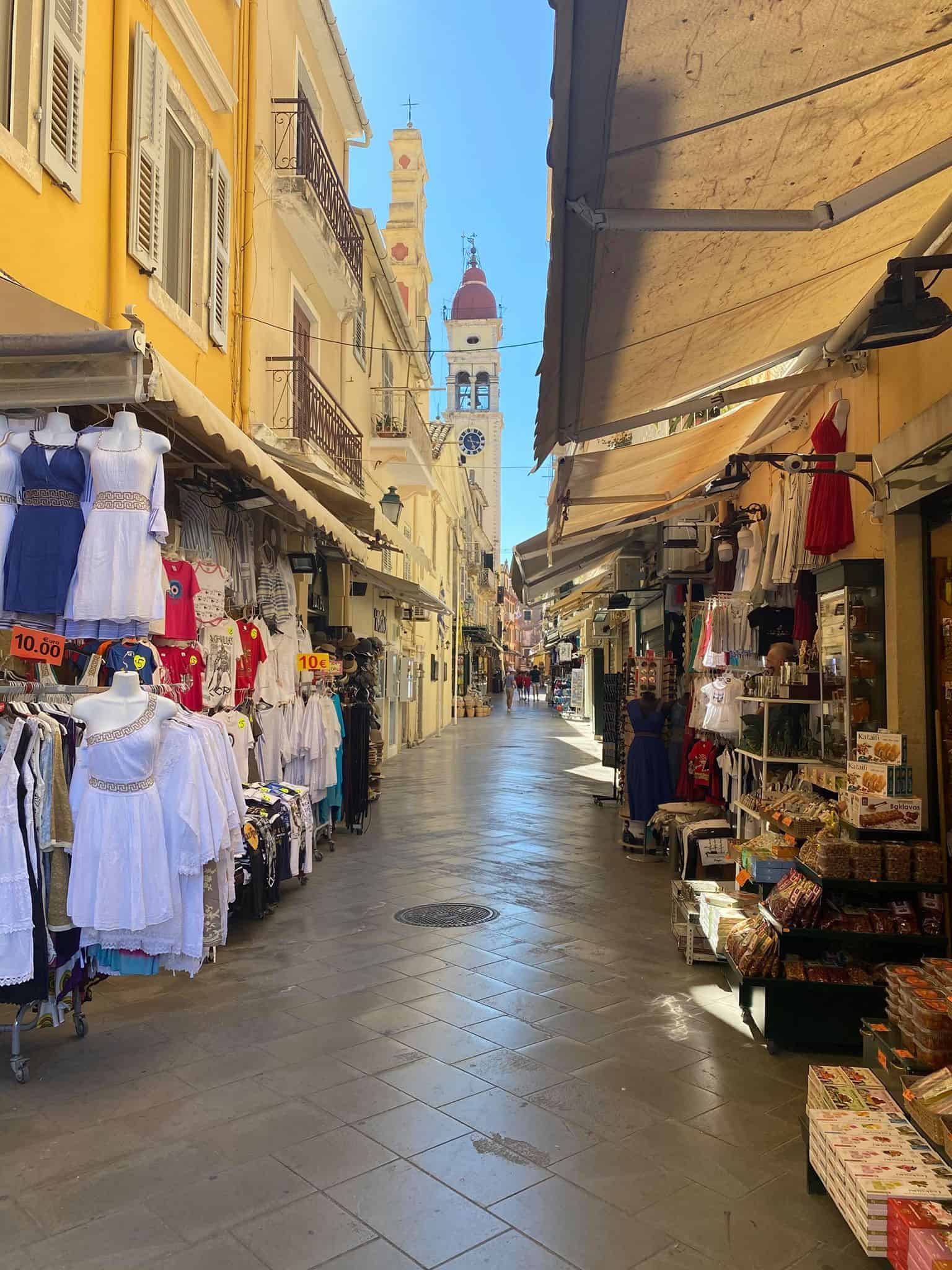
One of the most important (albeit somewhat gross) things to know before traveling to Greece is that the drainage systems in most of the country are very old and outdated. Putting anything down the toilet (paper et al) can easily result in a blockage.
So, you need to place your toilet paper in the trash can. If you see a notice on a toilet in indecipherable Greek characters, it likely says something about not flushing your paper.
There are quiet hours for siestas and rest

Part of the reason that Greek stores often close in the middle of the day is for a siesta. While many Greeks today don’t really partake in this tradition, you are still expected to respect quiet hours.
Quiet hours in Greece are between 3 pm and 5 pm in the daytime, and from 10 pm to 7 am. It is particularly important to be aware of this if you are staying in an Airbnb in a residential area or you are considering moving to Greece.
In Greece, rules are just guidelines
Sometimes, Greece can feel a little bit like the Wild West in comparison to other countries. This is especially the case when you look at Greece against Western Europe.
Rules are in place, yes. However, they are there more as guidelines than as strict orders to be stringently followed.
A car speeding through a red light? A daily occurrence.
Parking in the middle of the road while you dash off to quickly go and buy a coffee while the rest of the cars on the road have to drive around you and dodge incoming traffic? What’s the big deal?
Just like everywhere, Greeks shouldn’t drive without seatbelts or while on the phone with their friends. However, you’ll find that rules are broken a lot anyway.
If you plan on driving around Greece or managing an independent itinerary, you just need to be mindful of the somewhat more chaotic way that things are handled here. At the end of the day, this organised chaos and contempt for rules may be just another thing that you learn to love about Greece.
Renting a car is a good way to get around
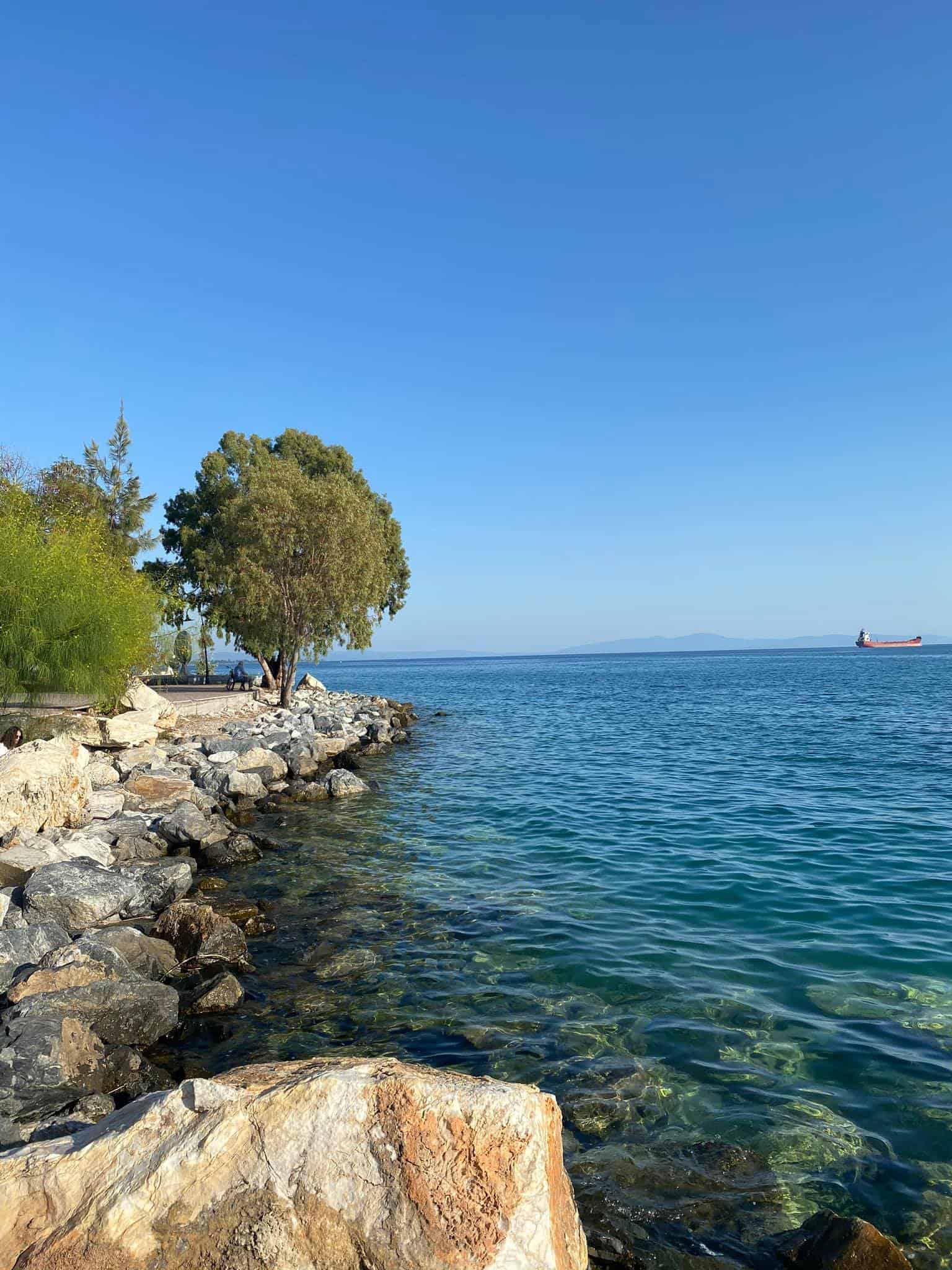
If you tell someone that you plan on renting a car and driving around Greece by yourself, they will probably look at you as if you have two heads! The reality is that renting a car is a good way to see the country. For one thing, it gives you a lot more freedom and flexibility and you don’t have to depend on public transport.
Some areas of the mainland are extremely difficult to get to without your own transport. For instance, Karpenisi, Evritania, and the Peloponnese.
Greeks drive on the right-hand side of the road like the majority of Europe. Roads are very well built and maintained.
One thing to be mindful of is tolls. You will pass through so many toll booths even just driving a few hours out of Athens that the price can really add up.
Summer is not the best time to travel
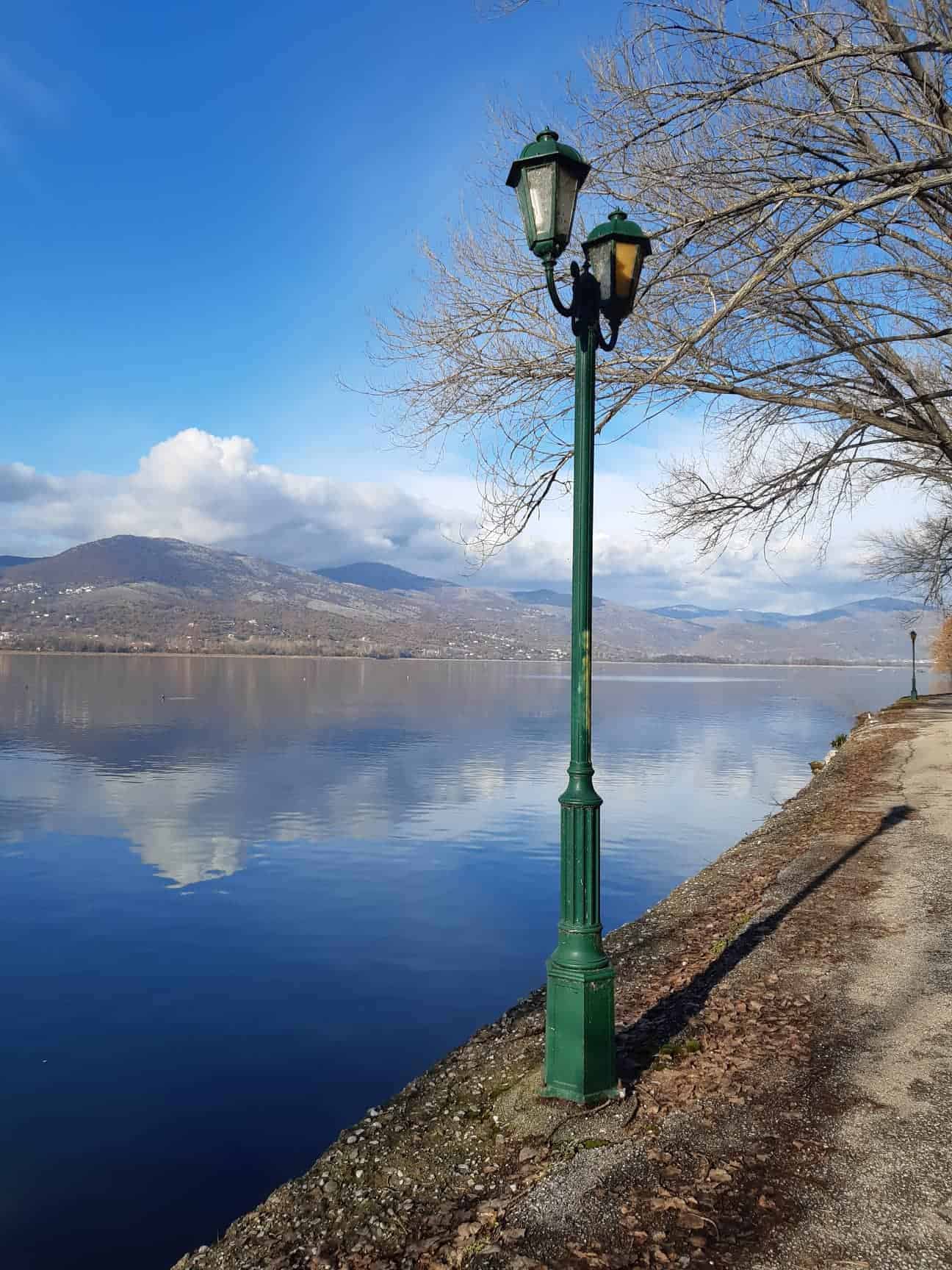
The months of July and August see Greece become practically overrun with tourists. In fact, there are probably more tourists than locals in Athens during this time!
If you choose to travel to Greece during the shoulder seasons of Spring and Autumn, the weather is still warm and pleasant. From October onwards, prices are often 50% lower than during the Summer.
Additionally, tourist sites are much less crowded, and the temperatures are more bearable for exploring outside for extended periods of time. Expect daily averages of around 25-26 degrees Celsius during this time.
If you are coming from a colder country such as the UK, Greek summer temperatures of 35 degrees and up are perhaps too hot to be manageable anyway. Arguably the best time to travel to Greece if you’re looking for an island getaway is early June or late September to avoid the crowds.
If you are looking to hike or go on a city break, realistically you could travel to Greece any time. Many of the traditional villages in the Peloponnese, Central, and Northern Greece are at their most charming during winter in Greece.
It is possible (and easy!) to venture off the beaten path
Off-the-beaten-path travel in Greece sounds like something of an oxymoron. Greece is SO popular among international tourists that it sometimes feels as though crowds are unavoidable. This could not be farther from the truth.
For every crowded and touristic Greek island, there are several destinations that the Greeks keep for themselves. Instead of traveling to busy Zakynthos, Kos, or Santorini, consider some of the lesser-known islands in the Cyclades.
Tinos, Andros, Folegandros, and Kea are every bit as stunning as Santorini and Mykonos, yet fewer people know about them. Halkidiki and the remote villages of Northern Greece are further examples of places that the Greeks have kept a secret.
Do you know how many Greek islands there are? There are more than 6,000! Over 200 of these are inhabited and yet, you always hear tourists going to the same few places.
Be strategic in planning your itinerary
Planning your own Greece itinerary is a much better option than organising a trip through a travel company. Travel companies often hugely inflate their prices to take commissions from your trip.
It can feel as though there is so much Greece and not enough time. However, be mindful of how many destinations you try to fit into your Greece itinerary so you are not spending too much time in transit.
If you have seven days to spend in Greece, try to allocate at least three days per destination. This is perhaps with the exception of some islands in the Saronic or the Cyclades where you can “hop” from one to another each day.
If you have fourteen days in Greece, try to fit in no more than 4-5 destinations. Check the distance between destinations and make sure that your route makes logical sense.
Greece is a majority Orthodox country

The vast majority of Greeks (98%) are Greek Orthodox. This religion is deeply intertwined with people’s traditions and culture.
On a Sunday, everything pretty much shuts down and all shops and supermarkets are closed. This even happens in central Athens and even more so in smaller towns and villages.
Orthodox Easter and Christmas are incredibly important celebrations for Greek people. The former sees the cities become ghost towns as thousands of locals flock back to their family villages for several weeks to enjoy the Easter festivities.
There are also several religious celebrations throughout the year to be aware of. The Ascension of the Virgin Mary is celebrated every 15th of August.
During this time, devotees embark on a pilgrimage to their local monasteries, and festivals are hosted across the country. One of the most famous monasteries to spend this day is the Proussos Monastery in Evritania.
Cash is still King here
Greece uses the euro, just like the majority of Europe. You will find that cards are widely accepted as it is a requirement for most businesses to offer POS services.
That said, you should always carry an amount of cash with you regardless. Some smaller shops and businesses may only deal in cash.
If you need to use an ATM machine to make a withdrawal in Greece, always use an official one that is attached to a bank. Independent ATMs are more likely to have been tampered with. Do not exchange money at airports and ferry terminals as the rate will be less competitive.
Most Greeks speak a good level of English
Greek is the national language of Greece. However, it is far from being the easiest European language to learn and you will note that many foreign people that live in Greece still struggle after years in the country!
The good news is that the vast majority of Greeks speak a very good level of English. This is particularly true in Athens and in touristic areas, but you will be fine getting by with just English in even the most random and remote parts of the country. Bars and restaurants usually have menus in English so it is not too tricky to communicate with locals.
Greece is an affordable travel destination
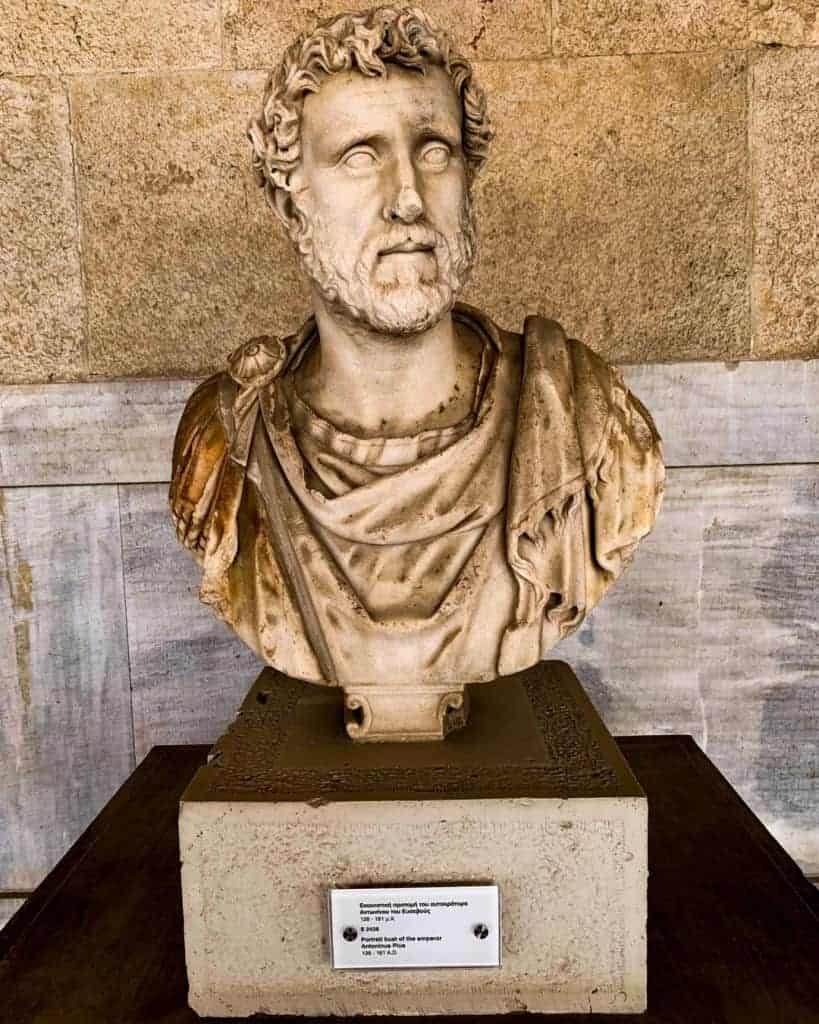
On the whole, Greece is a lot more affordable than other parts of Europe. The cost of living in Athens is said to be as much as 30% lower than the cost of living in other European capitals.
However, the specific prices that you can expect in Greece vary depending on where you are. Mainland Greece is cheaper than the islands, for example.
Conversely, the exclusive islands of Mykonos, Santorini, and the upscale Athenian Riviera are among some of the most expensive places that you can visit in Greece. They do not give a good representation of how much things cost here on average.
Make a note of important festivals in Greece
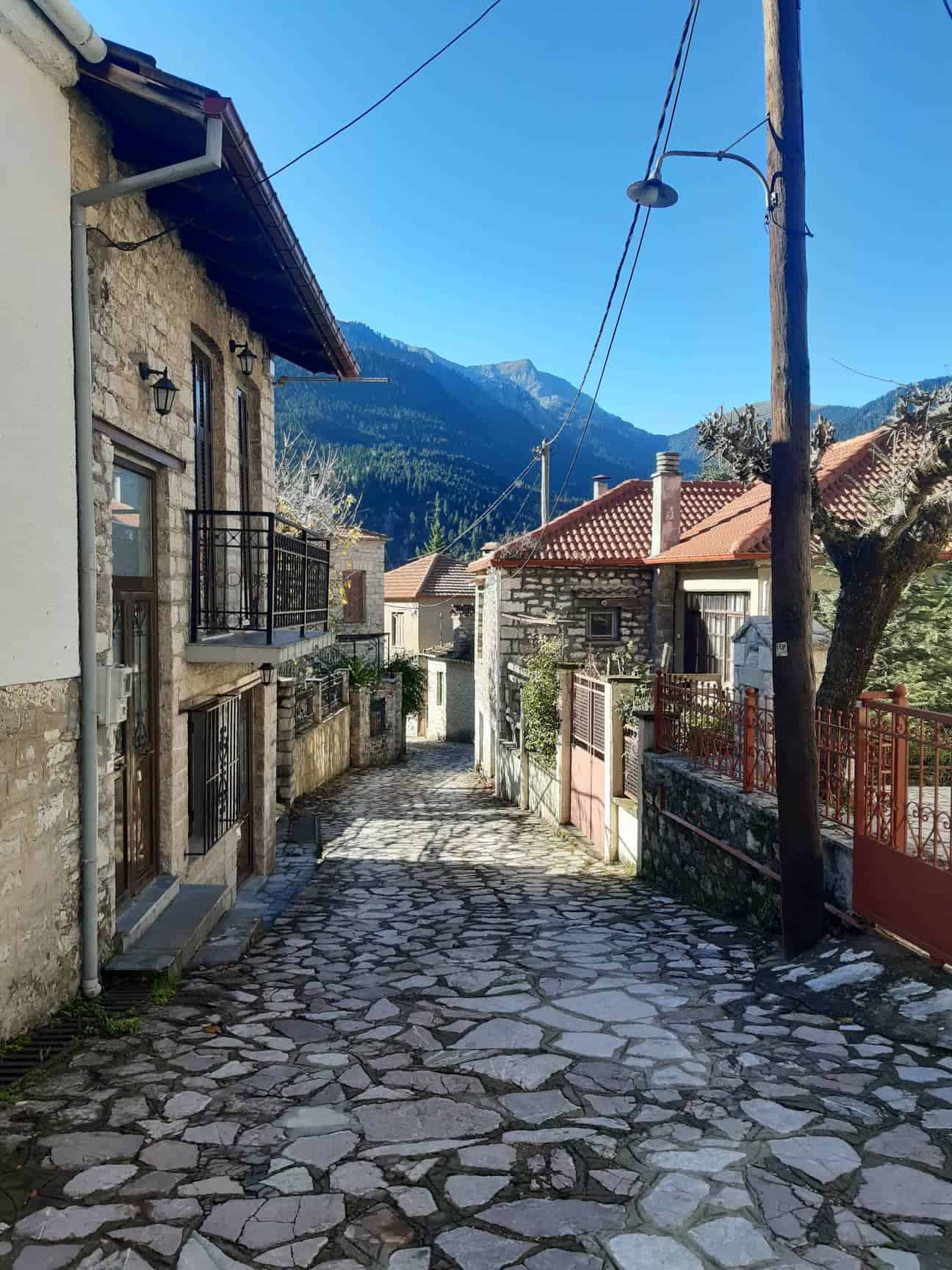
There are several festivals that take place throughout the year in Greece. If your vacation happens to coincide with the dates of these festivals, then attending can really enrich your trip. It is worth making a note of the below just in case!
- January: New Year’s Day
- February: Apokries/Greek Carnival
- March: Greek Independence Day
- March/April: Orthodox Easter
- May: Labour Day
- June – August: The Epidaurus Festival
- August: The Ascension of the Virgin Mary
- October: The Day of No “Oxi”
- November: Thessaloniki International Film Festival
- December: Christmas
Be cautious when taking Greek taxis
You should download the BEAT taxi app before arriving in Greece. This is our answer to Uber. Uber has actually been banned in Greece since April 2018, and the government specified that only licensed taxis could be used.
The taxis on BEAT are official yellow city taxis. However, it is better to order taxis via the app than to hail them in person in order to avoid scams. This way you know what the price of the cab is before you get in.
Taxi drivers are a breed of their own wherever you travel in the world. In Greece, this is no different.
Sometimes they will take you on a roundabout route to get from A to B because they think you don’t know the way. Some may simply not turn the meter on and then make up some exorbitant price for your journey.
Opening times in Greece can seem obscure
Most stores and businesses in Greece are open from 9 am until 9 pm and closed on Sundays. Large retailers and branch stores will be open continuously throughout this time.
Conversely, many independent businesses will take a break in the middle of the day. This is commonly between 3 and 5 pm.
The precise timing of the day break varies depending on the specific business. Supermarkets like Sklavenitis and AB Vassilopoulos close between 8 and 9 pm depending on the day and season.
Public transport in Greece is generally reliable
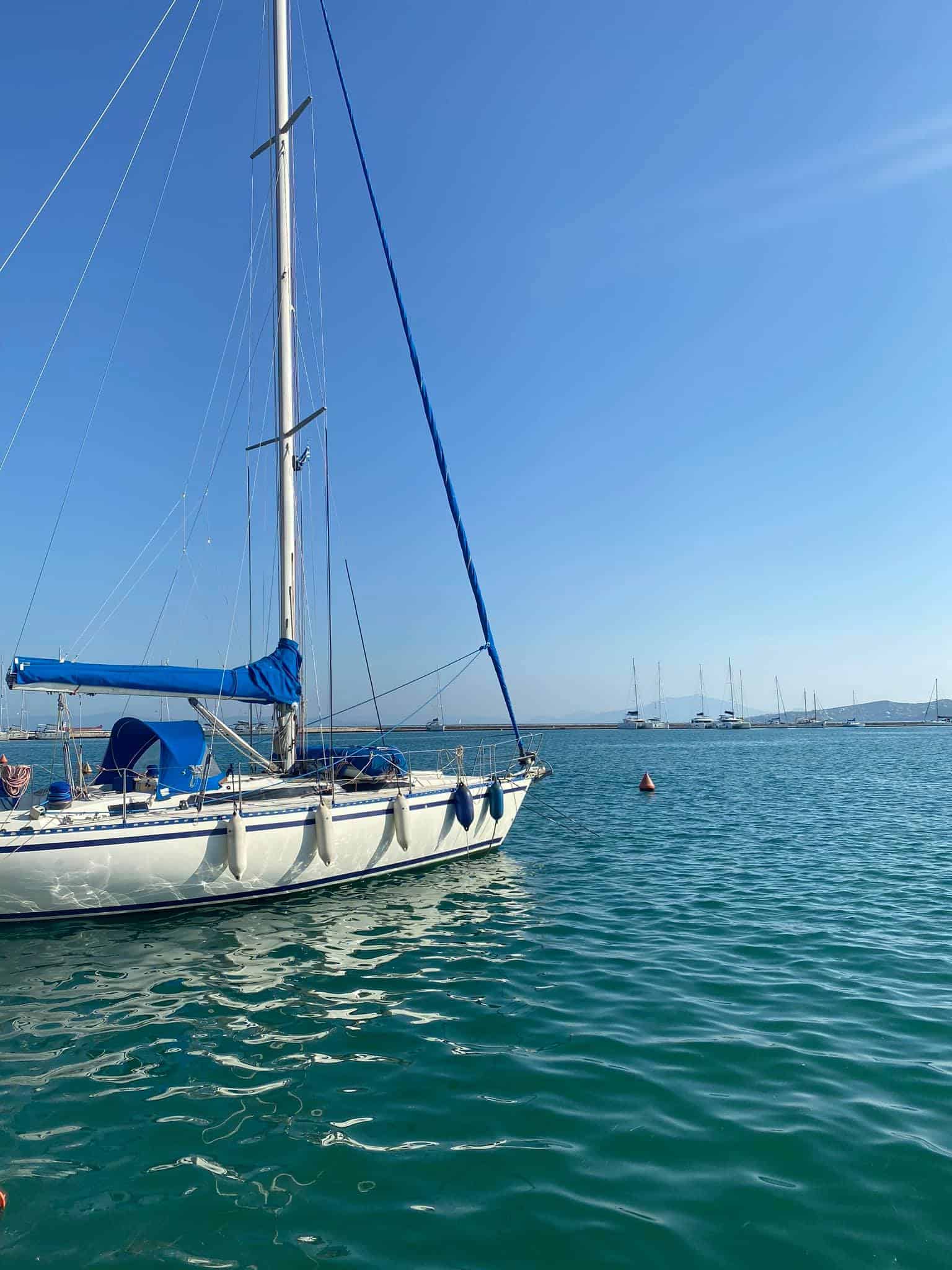
Public transport in Greece is generally very good. KTEL buses and trains service even the most remote parts of the country.
Most public transport services here generally run on time and are reliable. Some buses are dated but at least they are clean and comfortable.
The train network is far from extensive
Train services in Greece have improved a lot over the last few years. Trains are fast, modern, and efficient.
However, they operate on an extremely limited route and do not service all parts of the country. Hopefully, in the future, this will change.
If you are traveling between Thessaloniki and Athens, or from Athens to Meteora or Kalambaka, it is generally faster to take the train than to take the bus.
Greek train prices vary depending on the season. You can check the latest prices and schedules here. Since the train network in Greece is limited, if you are not traveling along the main routes, you may find that you need to use a combination of buses and trains to get from A to B.
The Greek bus network can be confusing to navigate
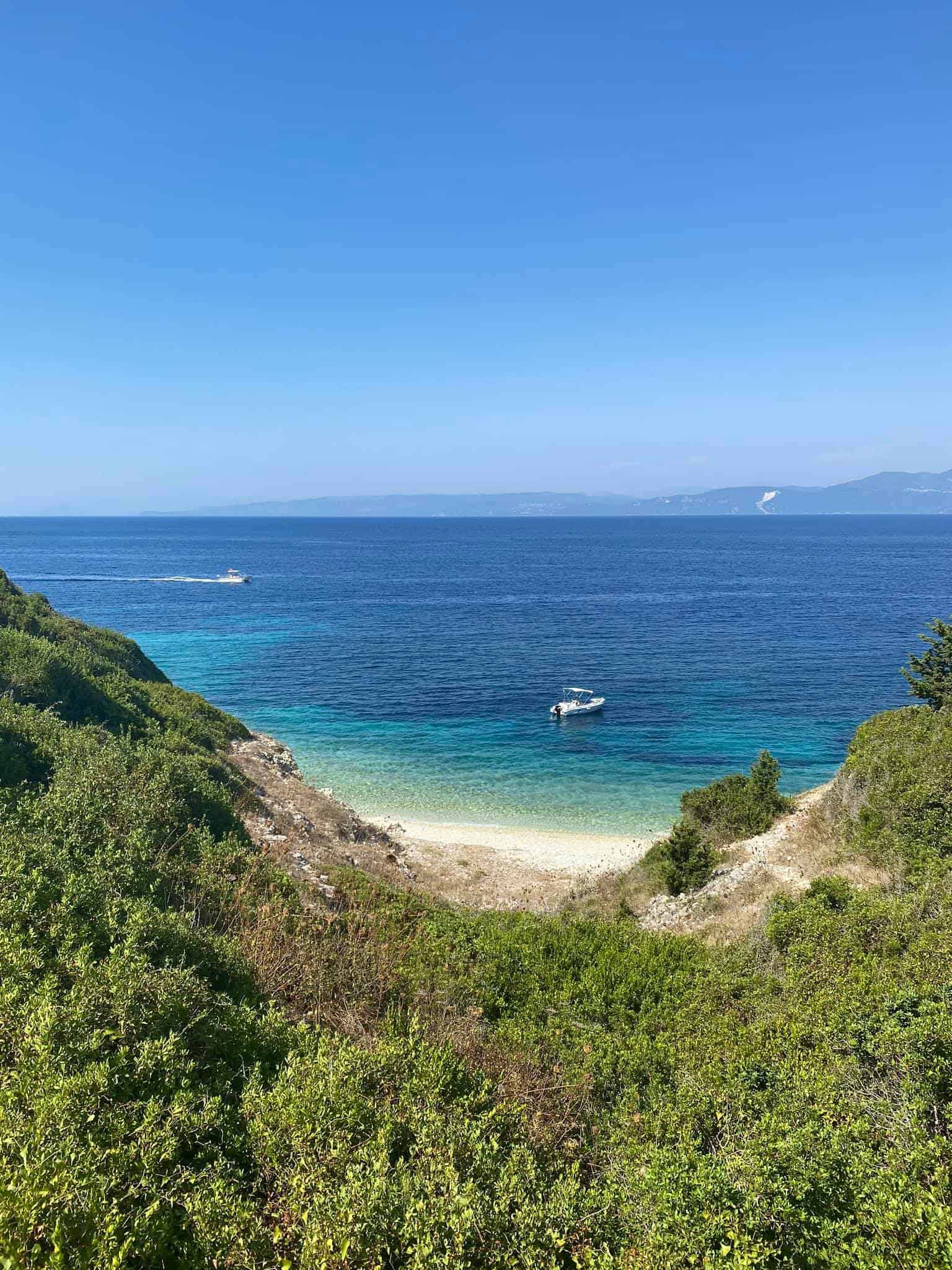
KTEL buses are a great way to get around Greece. They are also a very affordable way to travel. The headache lies in the fact that there is not just one main website that allows you to easily check all of the bus times.
There are different KTEL websites for different areas of Greece – ie Thessaloniki, Athens, etc. Sometimes the websites are not working or display incorrect schedules.
If this happens, you can check Rome2Rio for the schedule instead. In some smaller towns and villages like Metsovo, you may need to ask local businesses about the bus times and ensure you’re waiting at a stop at a certain time.
You can check the KTEL Attikis website for schedules in the Athens area here. The schedules for Thessaloniki and the north can be found on the KTEL Makedonia website here.
The Athens Metro is an affordable way to get around
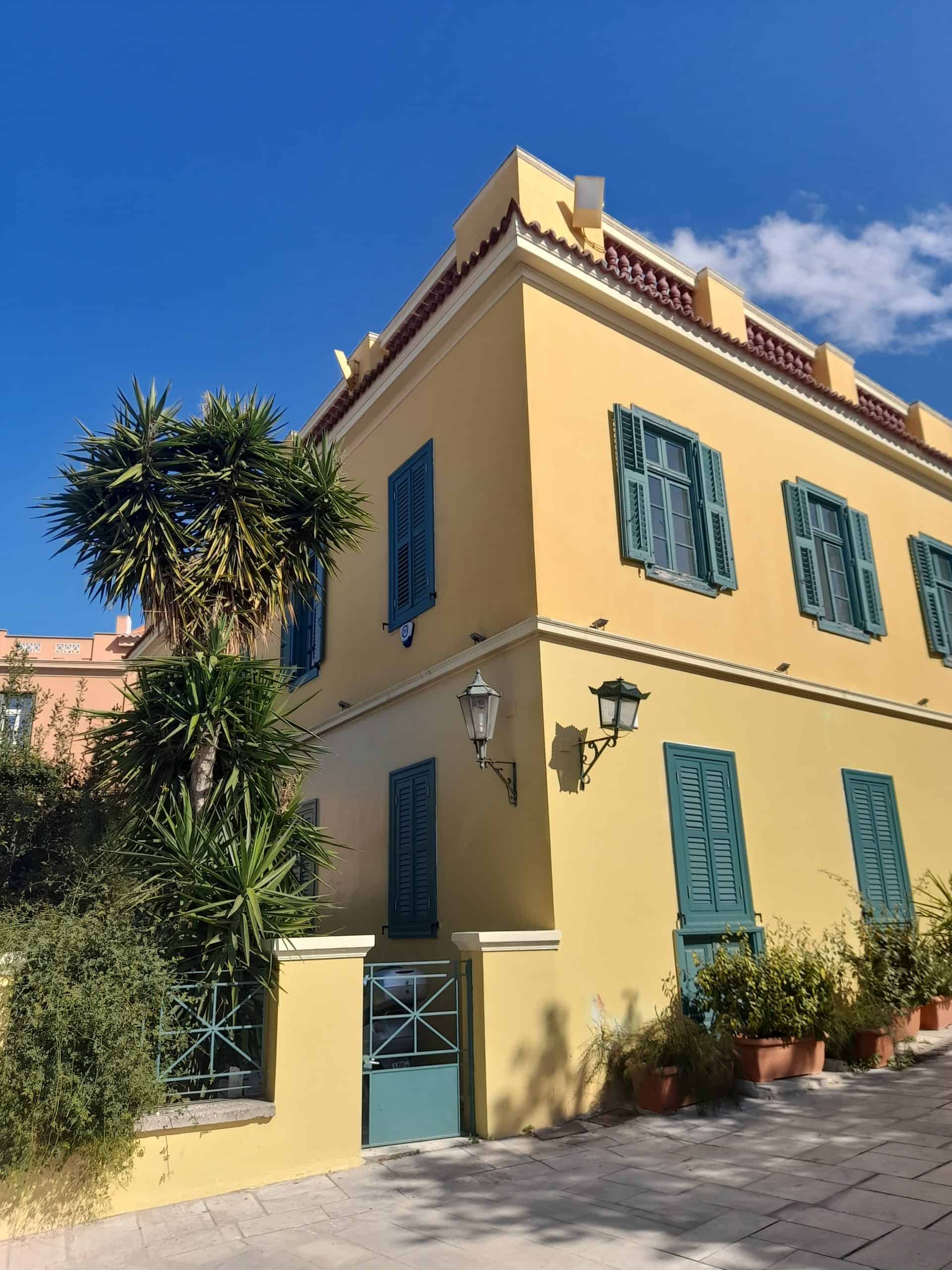
The Athens metro is a convenient and cost-effective way to get around the Greek capital. A one-way ticket costs just €1.40 or €2.80 return.
You can also buy weekly and monthly passes depending on how long you are sticking around. Construction on a Thessaloniki metro has been in progress for the last few years but it doesn’t look like it’s going to be completed any time soon.
Domestic flights across the country are very affordable
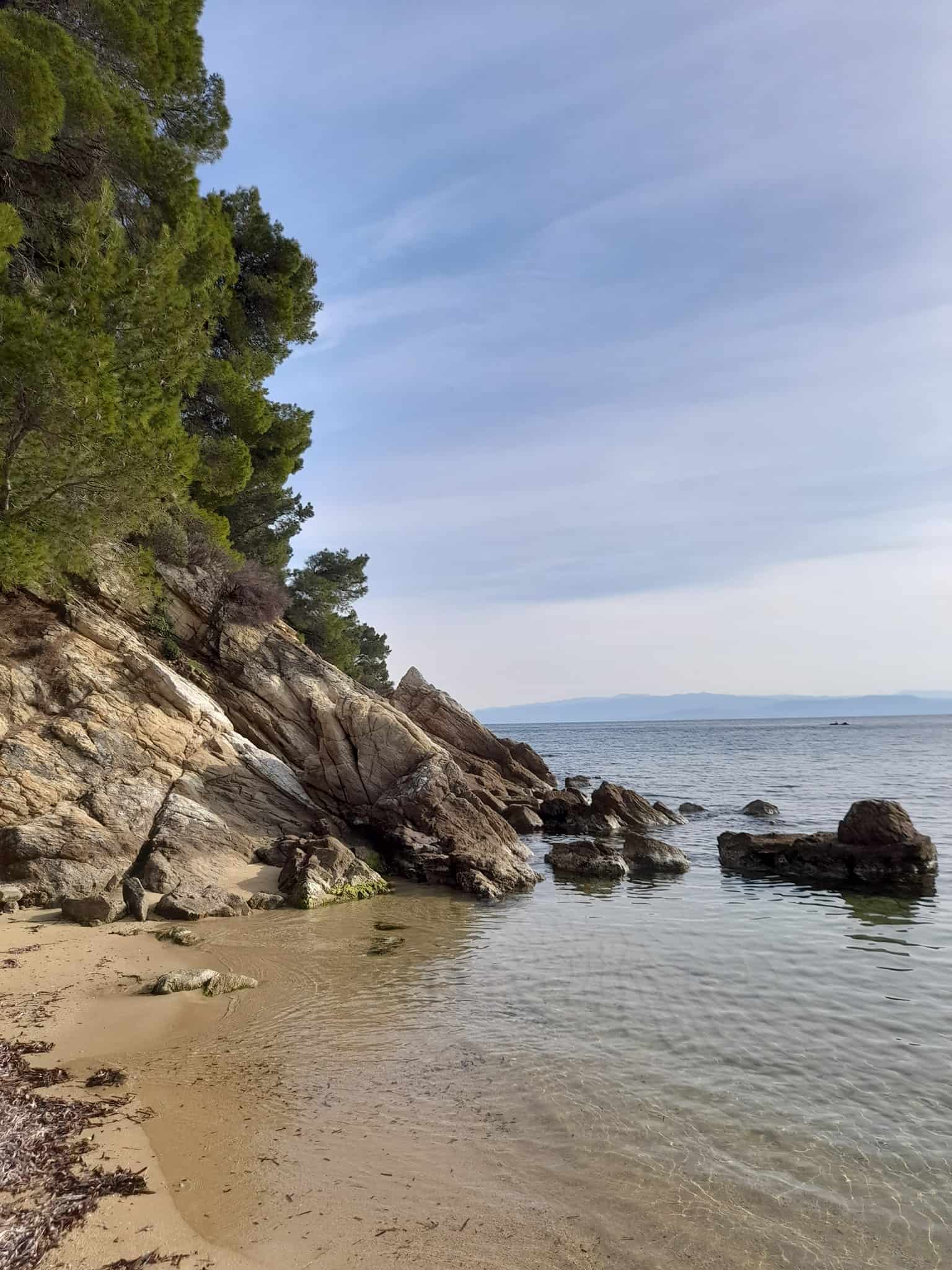
Domestic flights in Greece are very reasonably priced. You can get from Athens to Ioannina or Thessaloniki in under an hour, and from Athens to most of the islands in 1-2 hours. Sometimes this is much easier than taking overland/sea transport – especially if you are seasick!
Aegean and Olympic Air are two of the main domestic flight operators in Greece. Flights tend to be cheaper in the shoulder and off seasons (October to May). It’s not uncommon to find flights from Athens to Santorini for €25 or so.
Traveling by ferry is scenic and enjoyable
Ferries run between the Greek mainland and the islands all year round. However, the schedule varies by season.
Island tourism in Greece is very seasonal and only really runs between May and September. For the remainder of the year, there is a more limited schedule aimed to service the residents that live on these islands.
You can generally get away with buying your ferry tickets on your intended day of travel. The only exception to this would be if you are traveling in the height of summer, particularly if you need to get the boat at a specific time.
If this is the case, it is advisable to buy the tickets at the relevant port a few days before. Alternatively, reserve them online in advance.
There are three main ferry ports in Athens
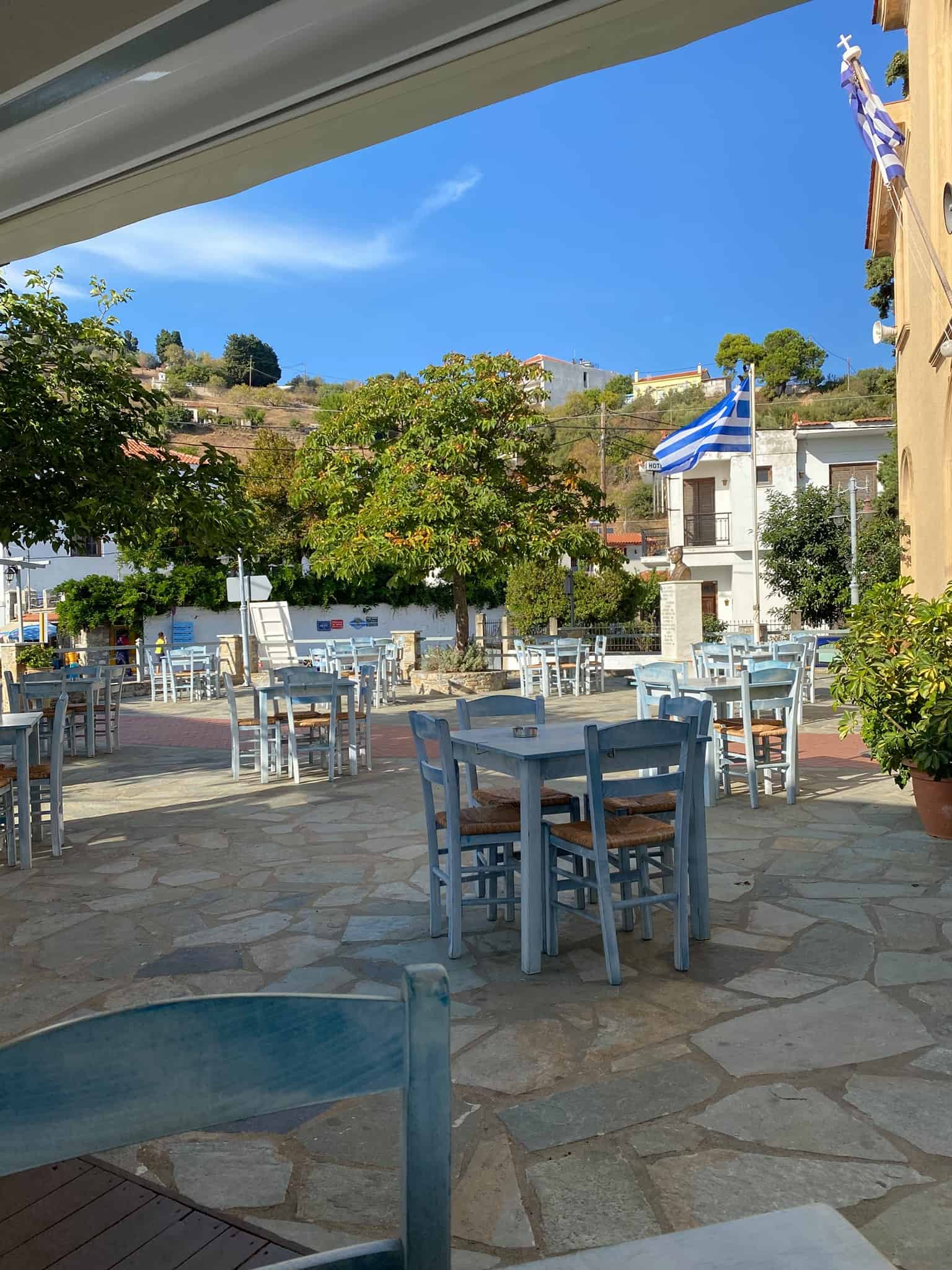
If you plan on using Athens as a jumping-off point to visit the islands of the Cyclades, the Dodecanese, Crete, and the Saronic Gulf, it is worth noting that there are actually three different ports in Athens. Namely, these are Piraeus port, Rafina port, and Lavrio port.
The main port is in Piraeus and this is the one that you are likely to use to get to most destinations. Rafina connects mainland Greece to Amorgos, Andros, Evia, Ios, Koufounisia, Mykonos, Naxos, Paros, Santorini, Syros, and Tinos.
Lavrio port is a convenient place to start to get from Athens to Kea, and a limited number of other Greek islands. However, it is mostly private boats that use this port.
Greece is a very safe country

Greece is a very safe country and violent crimes are rare. The main things that you need to be aware of as a tourist are petty crimes such as pickpocketing.
Athens is safe. However, just like in any big city, there are areas in Athens where you should be mindful of your surroundings at night. Be careful in the areas of Omonia, Exarchia, Monastiraki and Syntagma after sunset and watch your belongings on the metro.
Crime rates are generally low – especially on the smaller islands. I have travelled all over Greece on my own during my five years living here and have never once felt unsafe.
Greece is more conservative than much of Europe
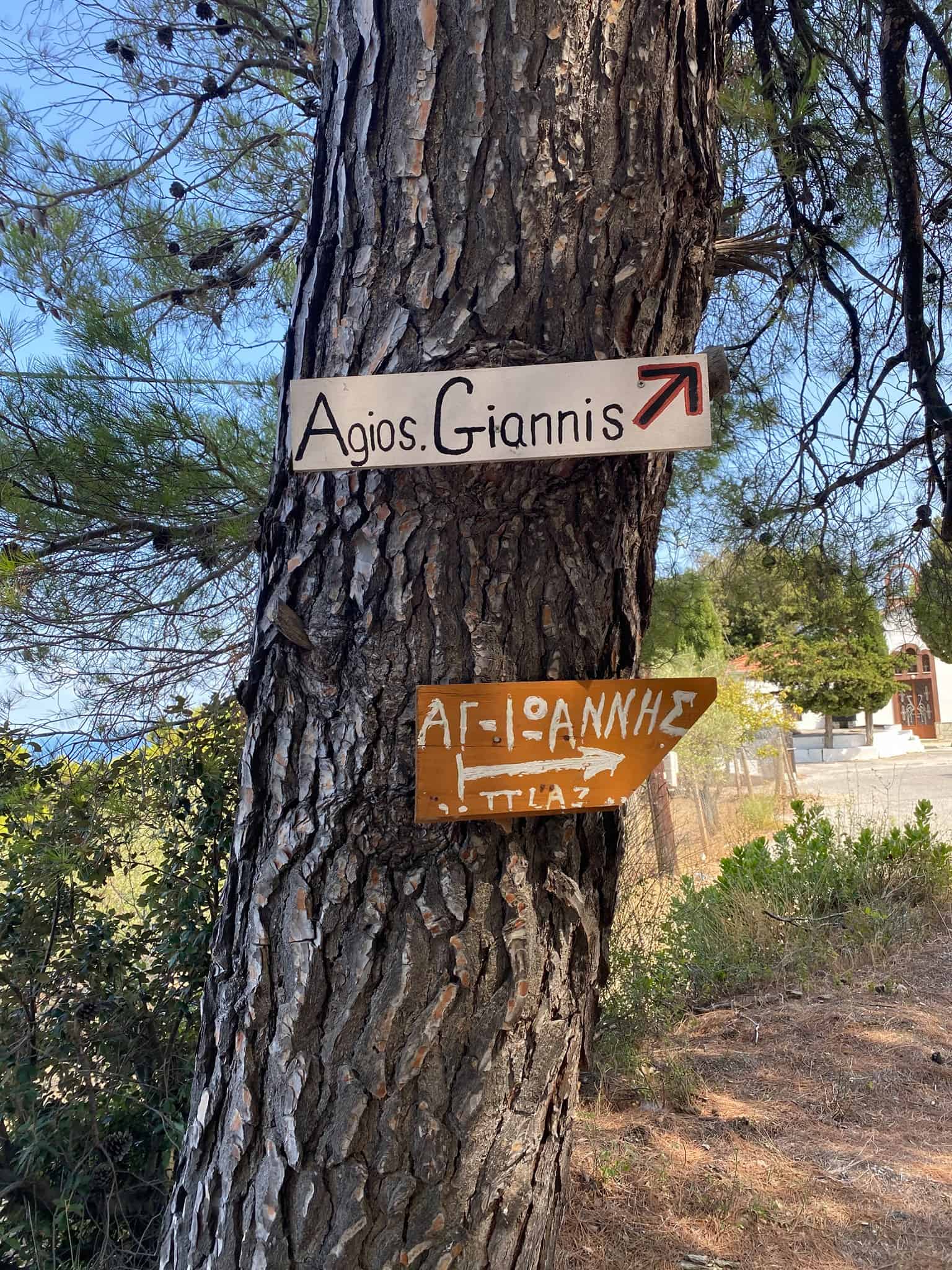
Greece is a lot more conservative than a lot of other countries in Western Europe – specifically when compared to the UK. This is something to keep in mind, as often you will see a lot of drunken British travellers singing, shouting, and generally acting obnoxiously.
It is a sad reality that the Greeks have to draft in specialist English police to help with the drunken debauchery of English tourists on some of the islands every summer. Keep in mind when you go out in Greece that measures are often stricter, and the local police have a lower tolerance for drunken and antisocial behaviour.
What to wear in Greece depends on the season
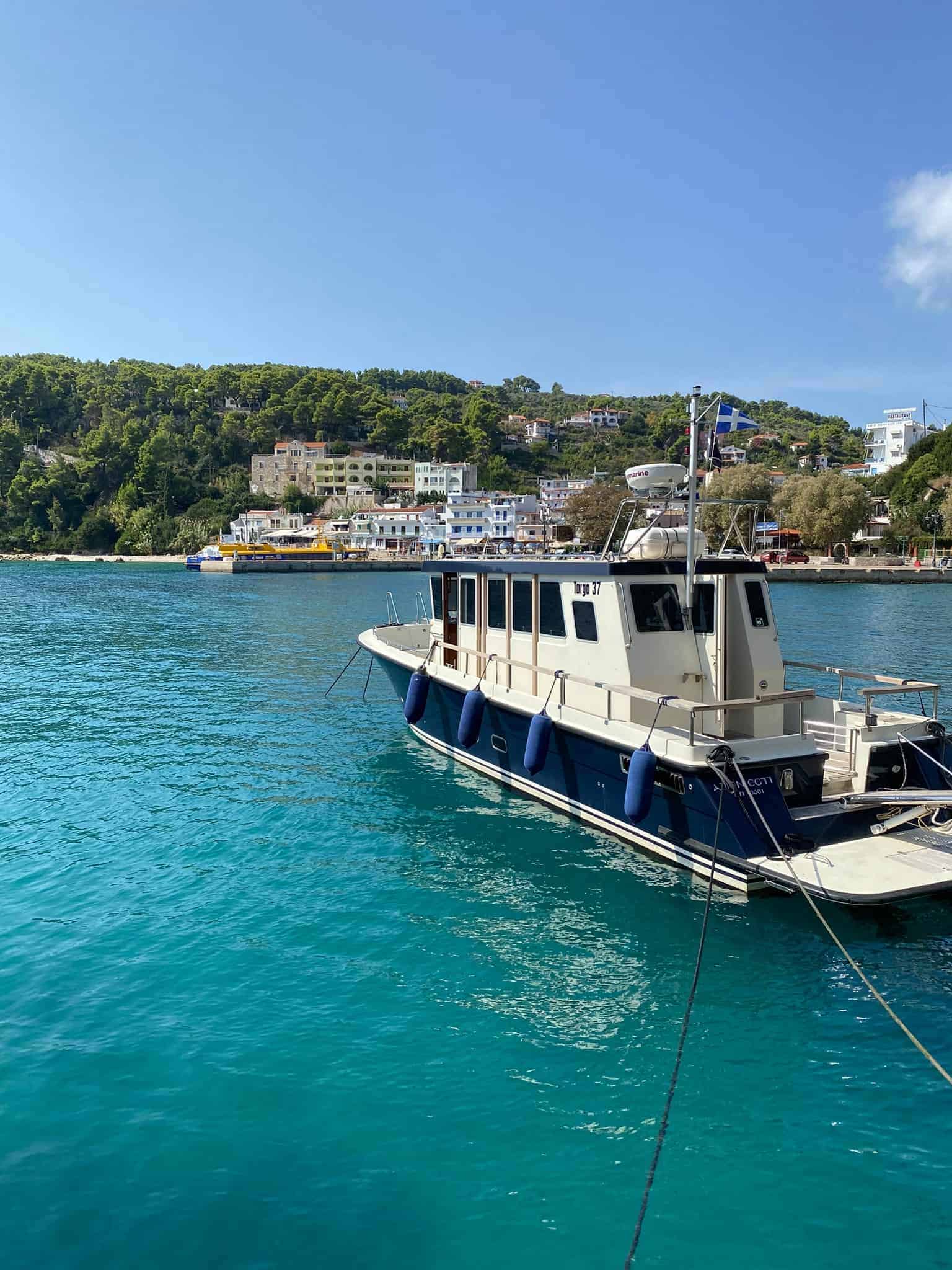
Mention Greece to anyone and they immediately envisage a Mediterranean paradise with warm climates, lemon groves, and romantic evenings spent dining al fresco in Cycladic villages. The reality is that temperatures in Greece dip quite a lot after late October.
Traveling to Greece in the summer months sees temperatures of 35 degrees Celsius and upwards. However, layers become a necessary part of your Greece packing list when traveling between October and March.
There are many interesting islands right near Athens
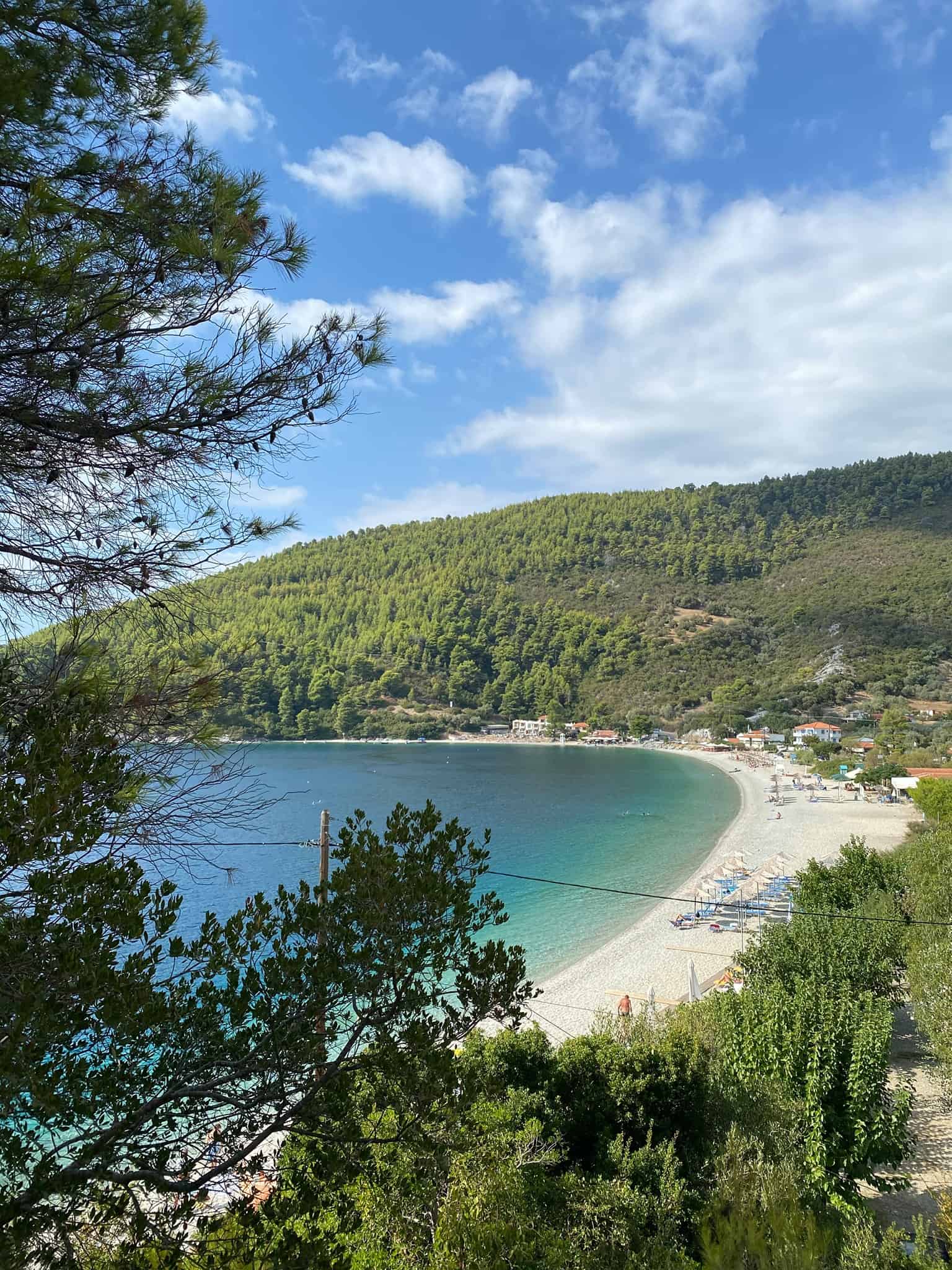
You don’t have to spend hours on a ferry to get to a Greek island in the middle of nowhere. There are many gorgeous and fascinating Greek islands close to Athens too.
The Saronic Gulf is an archipelago of charming islands that float just an hour away from Athens and the mainland of Southern Greece. These islands are often overlooked by international tourists.
However, they are a popular weekend getaway destination for Athenians wanting to escape the hustle and bustle of city life. Aegina, Agistri, Poros, Hydra, and Spetses are all wonderful places to spend a few days.
Journey back in time to Hydra – an island that is considered to be home to the most beautiful port in Greece. Discover natural spas in Methana, and hike through the rugged nature and national parks of Spetses.
Winter tourism in Greece is massively underrated
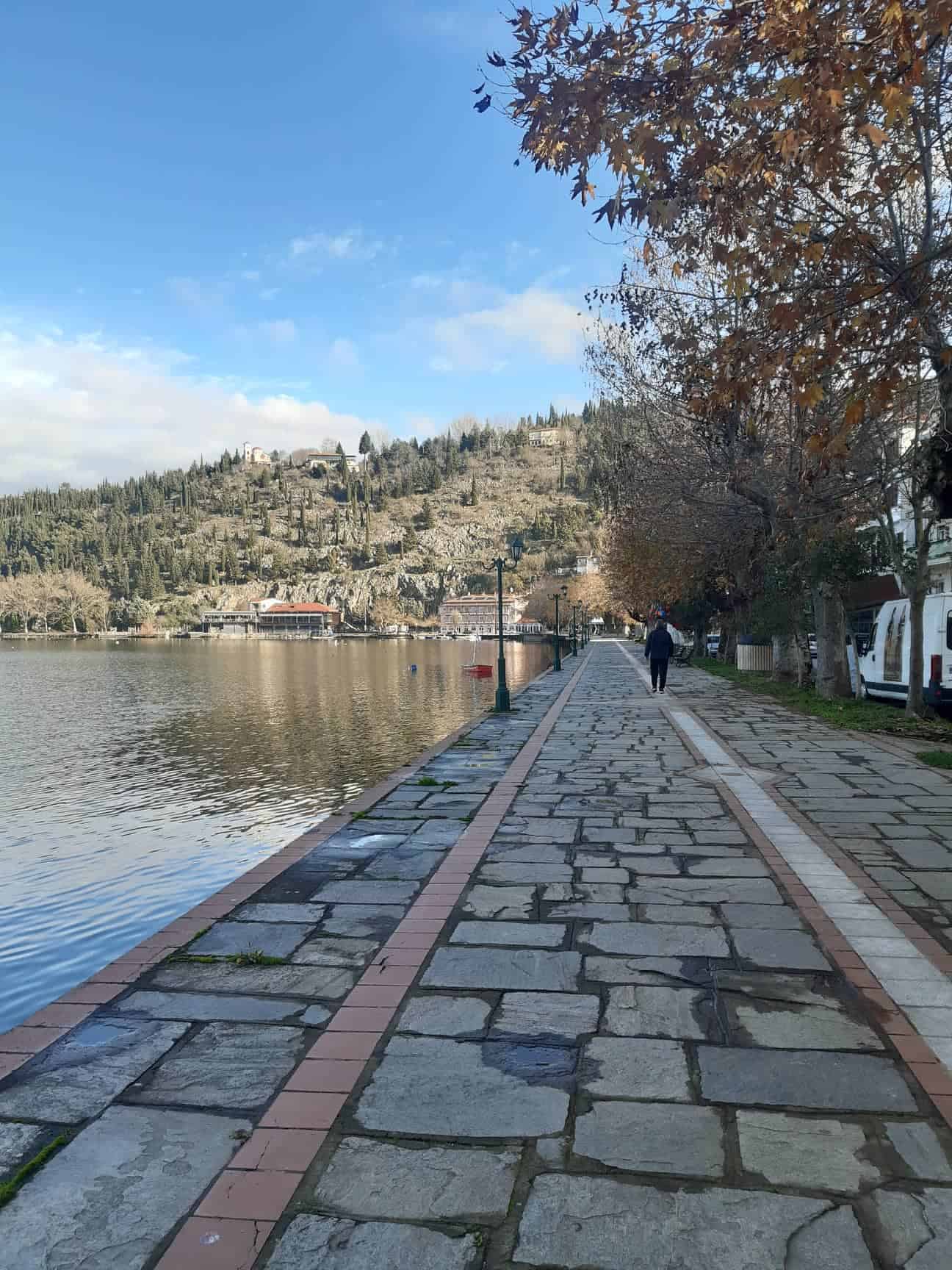
Northern Greece is one of the least explored, and most underrated regions of Greece. For that, it is also the most rewarding, especially if you prefer mountains, hiking, and traditional culture to islands and beaches.
In the winter months, charming mountain-top villages are a popular getaway destination among locals. Book a cosy retreat in the little Vlach village of Metsovo, or venture off the beaten path to the old furrier city of Kastoria.
Ioannina is the leafy, northern capital of the Epirus region of Greece. You could spend a wonderful weekend in Ioannina discovering the city’s Ottoman past, and sailing out to the mysterious nameless island in the heart of Pamvotida lake.
Greece is an underrated hiking destination
Greece is a wonderful destination for hiking and some of the best trails in Europe pass through the country. Few people consider Greece a hiking destination which is a shame. Why would a country with such beautiful scenery not be a great place to go walking?
Northern Greece’s Vikas Gorge is one of the best places for hiking in Greece. The region is especially pleasant in the Autumn months when the summer crowds disperse and the trees are alive with the red and orange hues of fall colours.
The area is known as Zagorohoria and is comprised of 44 little stone villages. The Gorge spans over 12km and it is possible to break the hike down into several small day hikes.
Consider hiking from Monodendri to Vikos, Vikos on to Papingo, and then from Monodendri south to Kipi, spending each night in a different village.
There are 18 UNESCO Sites in Greece
There are 18 UNESCO world heritage sites in Greece. Of these, perhaps the Acropolis, Rhodes old town, Corfu old town, and Delphi are the most well-known.
The UNESCO protected island of Delos has to be one of the most mysterious sites in the Cyclades. Nobody is permitted to live on the island, and Delos has strong roots in Greek history and mythology.
Legend has it that the God Apollo and Goddess Artemis were born on Delos. The island was subsequently rendered as being sacred ground and no human was permitted to live on it.
Today, you can sail out here for the day from Naxos and other nearby Greek islands. The uninhabited island is filled with the crumbling remnants of old temples and ancient collonaded walkways.
Apokries is a huge, unique celebration
In the lead up to Orthodox Easter, Greeks celebrate “Apokries” or carnival. Bars and clubs across the country host themed costume parties throughout February.
This all comes to a crescendo at the Patras carnival when more than one million people take to the streets of Patras to party and celebrate with costumes and floats.
You can reach Patras in just a couple of hours from Athens. However, if you plan on attending the carnival, be sure to reserve your accommodation in advance as everywhere sells out months in advance.
Getting from Athens airport to the city centre is easy
It’s very easy to get from Athens Eleftherios Venizelos Airport to the city centre. You can easily make the journey in under an hour, give or take a little extra time if you’re traveling at rush hour.
By Metro
The easiest way to get into Athens from the airport is to take the metro. You need to buy a special “Athens and Airport” ticket for €10.
The train from the airport goes all the way to Syntagma central station. From there, you can easily transfer lines to Thissio, Monastiraki, Acropoli, or wherever else you need to go.
By Bus
The X95 bus departs every 15-20 minutes from Athens Airport to Syntagma square. A ticket costs €6 per person and the bus can be found just outside Arrivals at the airport.
By Cab
It costs approximately €35 to take a cab from Athens airport to the city centre. If you need to travel to Piraeus, you should budget around €50.
Greek airport cab drivers tend to be pretty straight. You should encounter no tricks and scams if you simply hail a cab from outside arrivals.
Keep the above prices in mind as a frame of reference. You can always use the BEAT app if necessary.
Greek food is more than just souvlaki and gyros
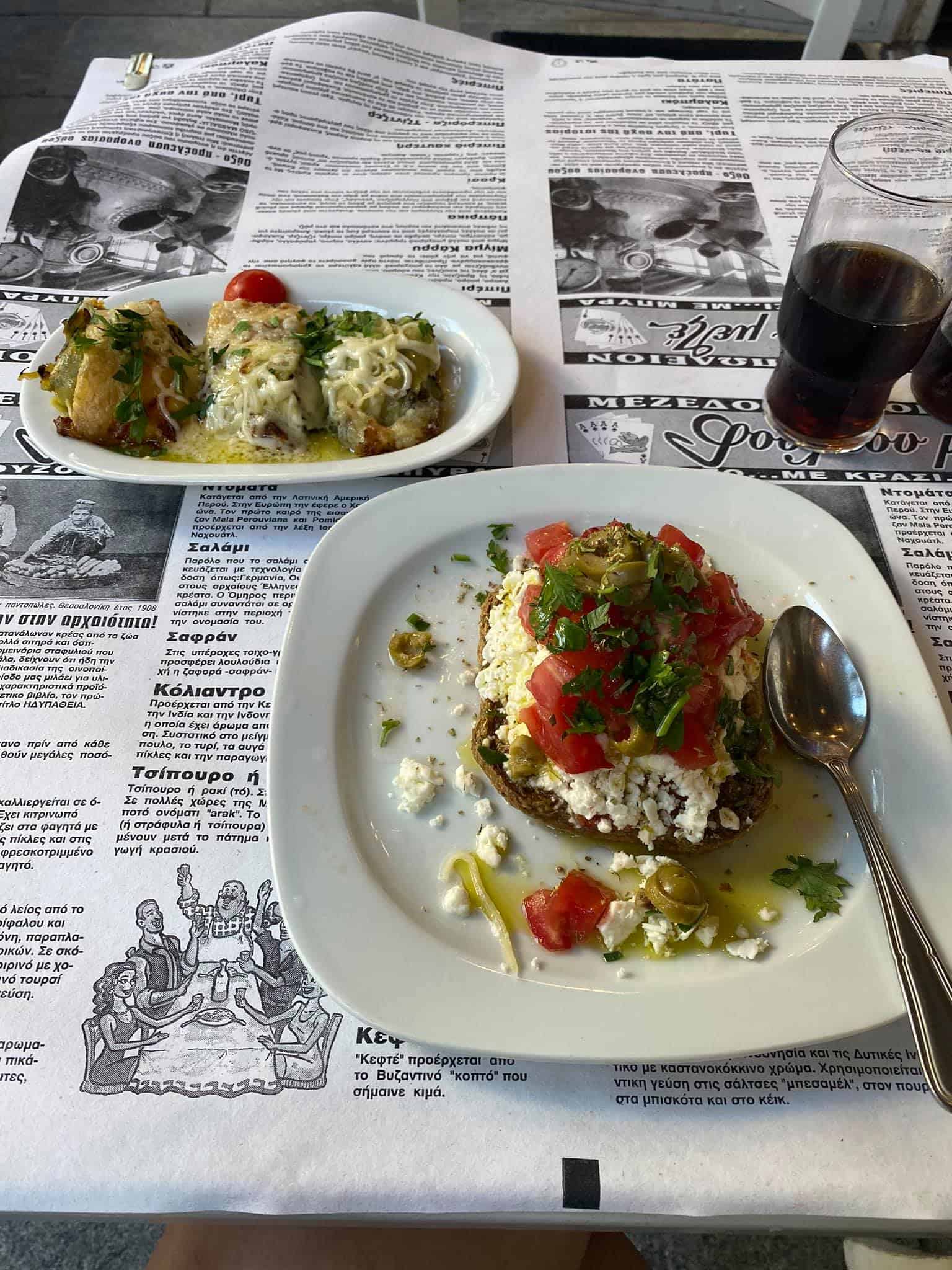
Greek cuisine is sumptuous and flavourful. Greece is renowned for being a meat lover’s paradise with its marinated meats, kebabs, and gyros.
Fortunately, the local food is so much more than that. Even those with dietary restrictions or who follow a vegetarian/vegan diet will not struggle to find dishes they enjoy.
Greeks follow a Mediterranean diet, characterised by fresh salads and excellent local produce. It’s possible to dine in local tavernas and order up several meze dishes (small plates) for just a few euros.
As a rule of thumb, you can estimate prices of between €6-10 per person in a restaurant or tavern. Try to avoid dining near tourist attractions (i.e. Monastiraki square in Athens or Plaka) as the prices will be much higher.
Street food is a huge part of Greek food culture. Eating a Souvlaki or a gyro is both cheap and filling – perfect if traveling on a budget!
You can find gyros for around €2.40, and souvlaki skewers for approximately €1.40 each. If you stay in self-catered accommodation, Efood is the Greek answer to Uber Eats!
It is important to buy comprehensive travel insurance
It is prudent to purchase comprehensive travel insurance before traveling to Greece. The same can be said when traveling anywhere in the world.
Most vacations are trouble free, but you never know what may happen. Try to purchase insurance coverage that offers at least €1 million of medical coverage just in case you should need medical attention overseas.
Always read the small print of travel insurance policies. Good insurance plans also cover things like repatriation, theft or loss of luggage, and cancellations. Check to see what activities are covered. For instance, renting mopeds or ATVs is popular on some Greek islands but this may not be covered by your insurance policy.
It is useful to make a note of important contacts
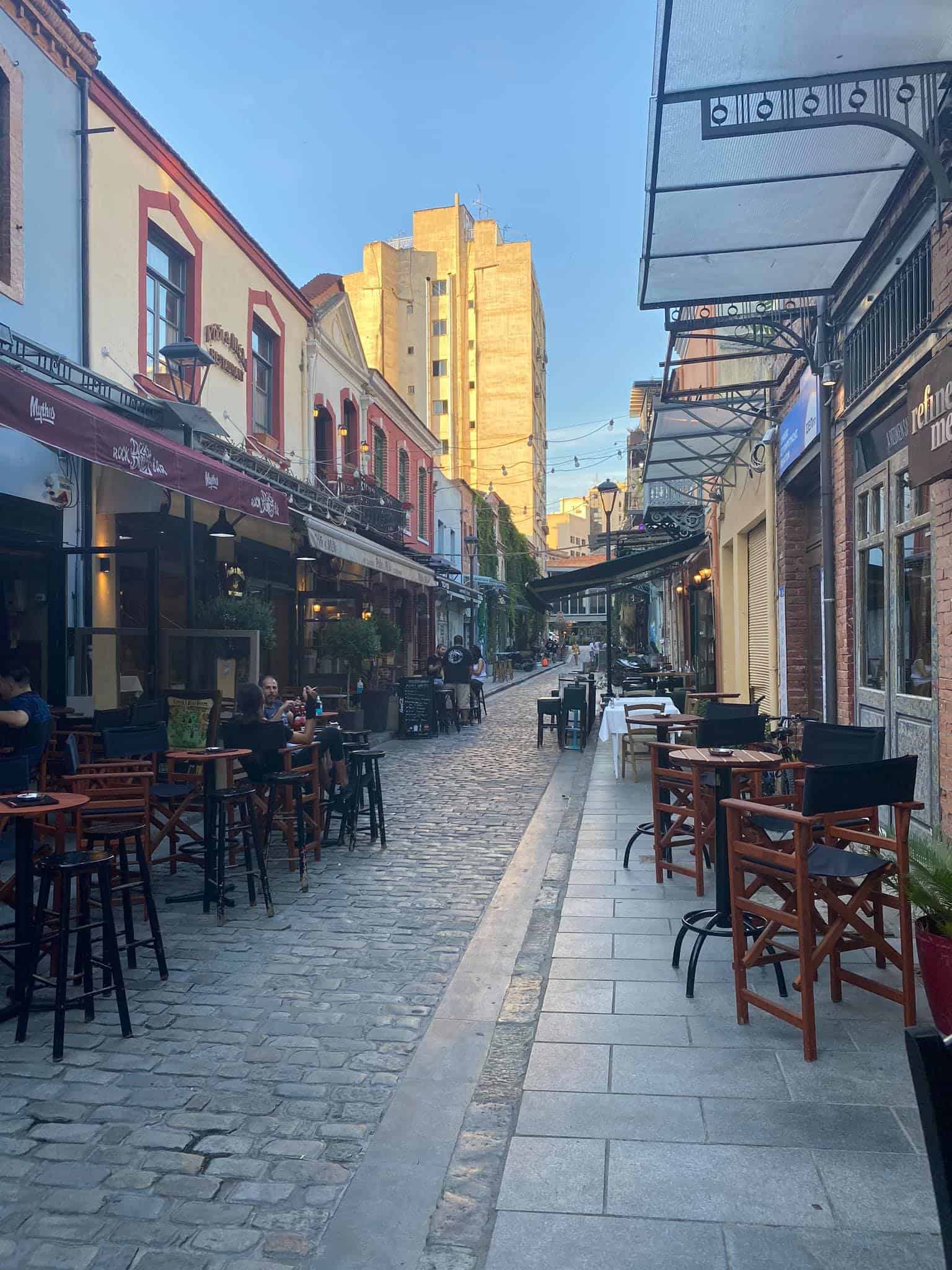
It’s worth making a note of your country’s embassy information, along with contact information for several key local contacts before traveling to Greece. Some contacts to be aware of are detailed below:
- British Embassy, Athens: +302107272600
- American Embassy, Athens: +302107212951
- Emergency Police: 100
Travelling solo in Greece is safe
It is perfectly safe to travel to Greece alone, and your solo experience is likely to be a pleasant one. In my 5 years of living here, I’ve travelled all over the country by myself.
You should not worry about any assumed “stigma” of traveling to “romantic” islands and honeymoon destinations by yourself. You deserve it!
Nobody really cares and the locals will have seen this thousands of times before. If you are planning on traveling alone and you hope to meet other travellers, you can download apps like Couchsurfing and Meetup so as to meet people.
Scams in Greece do happen occasionally
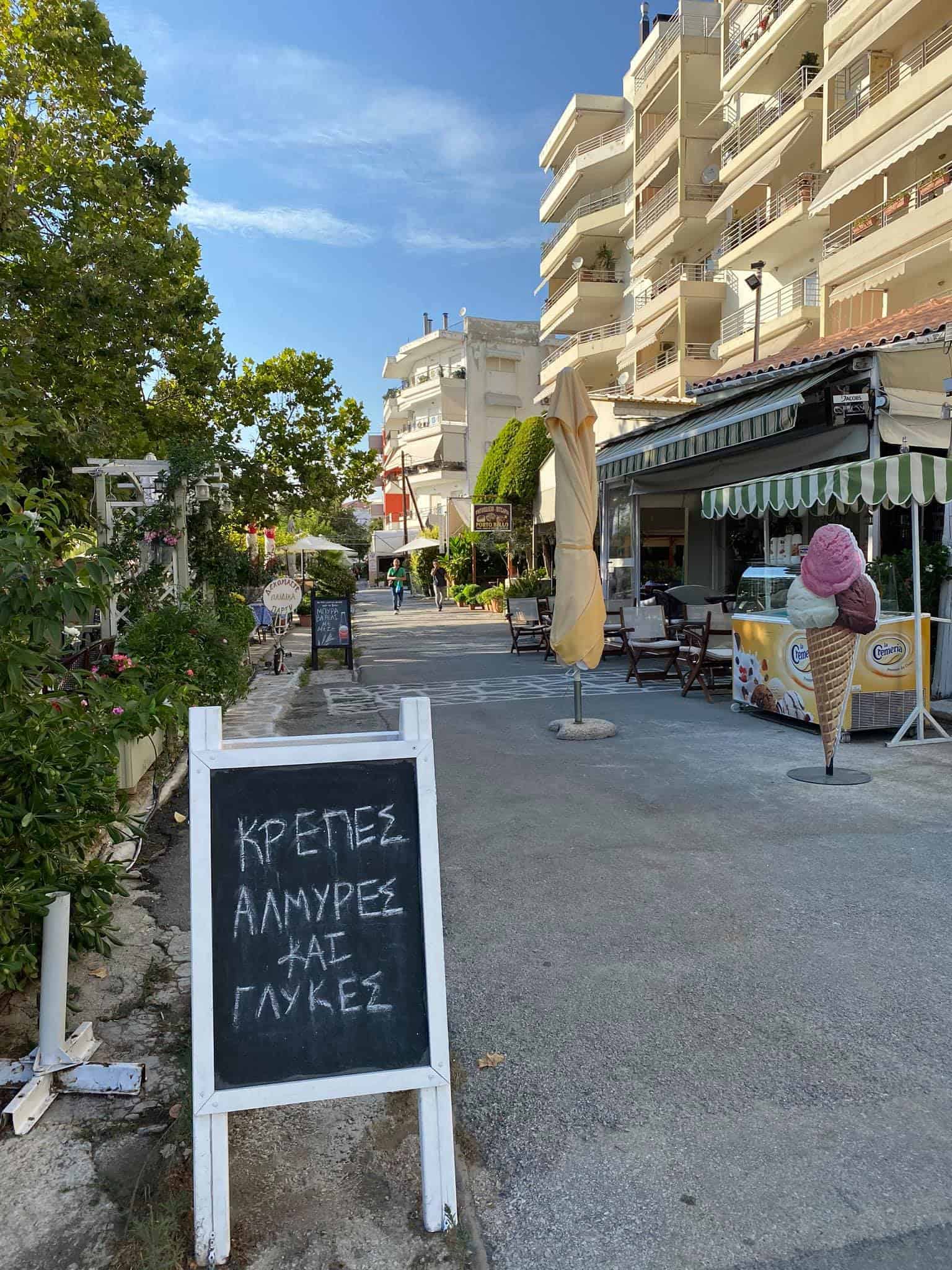
Greeks are generally very warm and welcoming people. However, it’s not uncommon to encounter scams in Greece, just like with traveling anywhere in the world.
This is particularly the case in tourist areas close to popular attractions like the Acropolis, or old Plaka and Thissio in Athens. A few things to look out for are detailed below.
Menus without prices
It is not uncommon to be cheated on the prices at touristic restaurants. If a taverna does not have prices listed, don’t eat there! The waiter will invent a price on the spot.
Incorrect calculations on bills
Always check the prices of the items that you are ordering at restaurants and tavernas in touristic areas and islands. Sometimes, the bill will come and the price will be completely different to what was listed on the menu.
Other times, you may find that items that you did not order mysteriously appear on the bill or arrive at the table. Send them back or you will be charged!
Transport Touts
Confirm the prices before you take a water taxi, a rickshaw, a horse and carriage, or any other form of transportation in Greece. Sometimes, drivers will tell you one price, and then later tell you that that price was per passenger, and the cost transpires to be much more.
Bracelet Scam
There are often touts standing outside the Ancient Agora in Thissio, and in other touristic areas across Greece. They will tell you that they have a “gift”, or they will try and tie a string bracelet around your arm.
While they are doing this, their companion may be pickpocketing you. Otherwise they may then insist that you pay a fee.
Pack and use plenty of mosquito spray
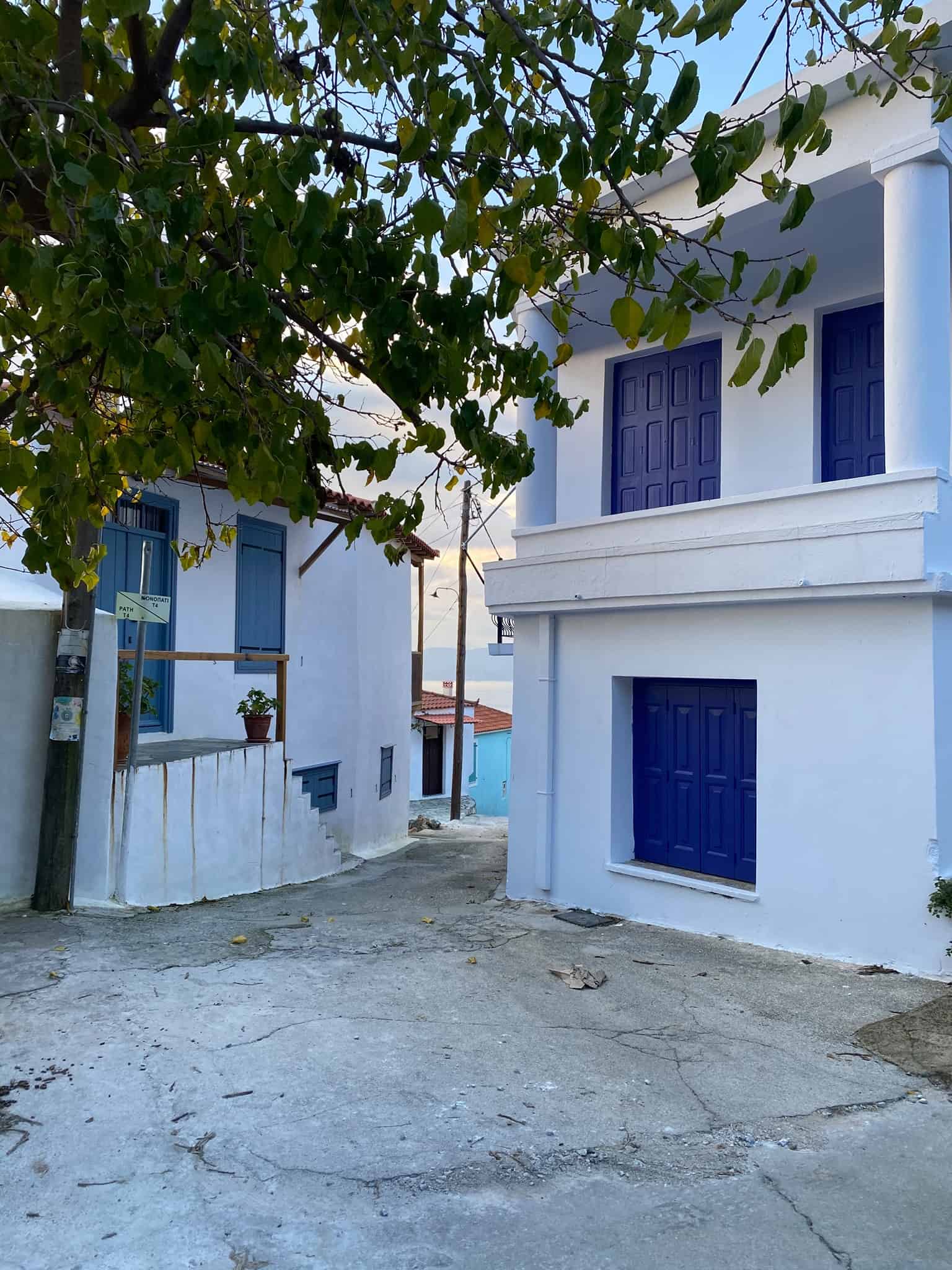
Mosquitos in Greece are more annoying than dangerous, but if you spend a lot of time here in the summer, you can quickly find that you amass a ton of bites that swell up into unsightly welts. The last couple of years have seen an emergence of the West Nile virus in Greece.
This is a mosquito-borne disease that seems to pop up every summer and causes symptoms such as a fever, a headache, and body aches. It is unlikely to become serious but it is worth being aware of this.
If you are traveling to Greece in the summer months, be sure to always use mosquito spray, and try to wear long sleeves and trousers in the evenings. You may also want to consider purchasing a plug-in mosquito repellent or wearing repellent bands if you are particularly susceptible to bites.
Parting Words
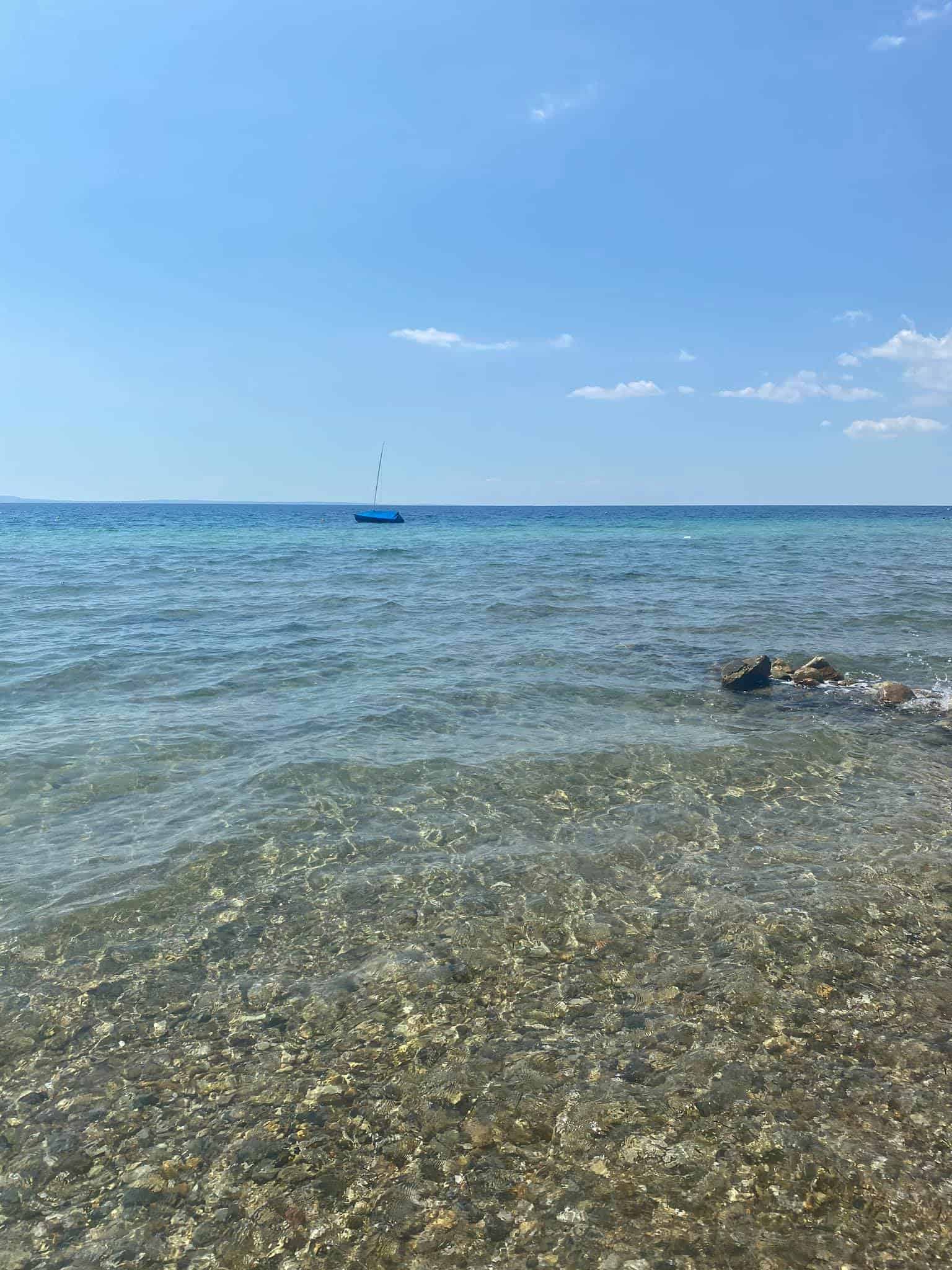
Have any further questions about things to know before traveling to Greece? I’ve lived in Athens for the last 4.5 years.
Please don’t hesitate to reach out to me if you need something and I’ll do my best to get back to you as soon as I can.
Safe travels! Geia sou!

